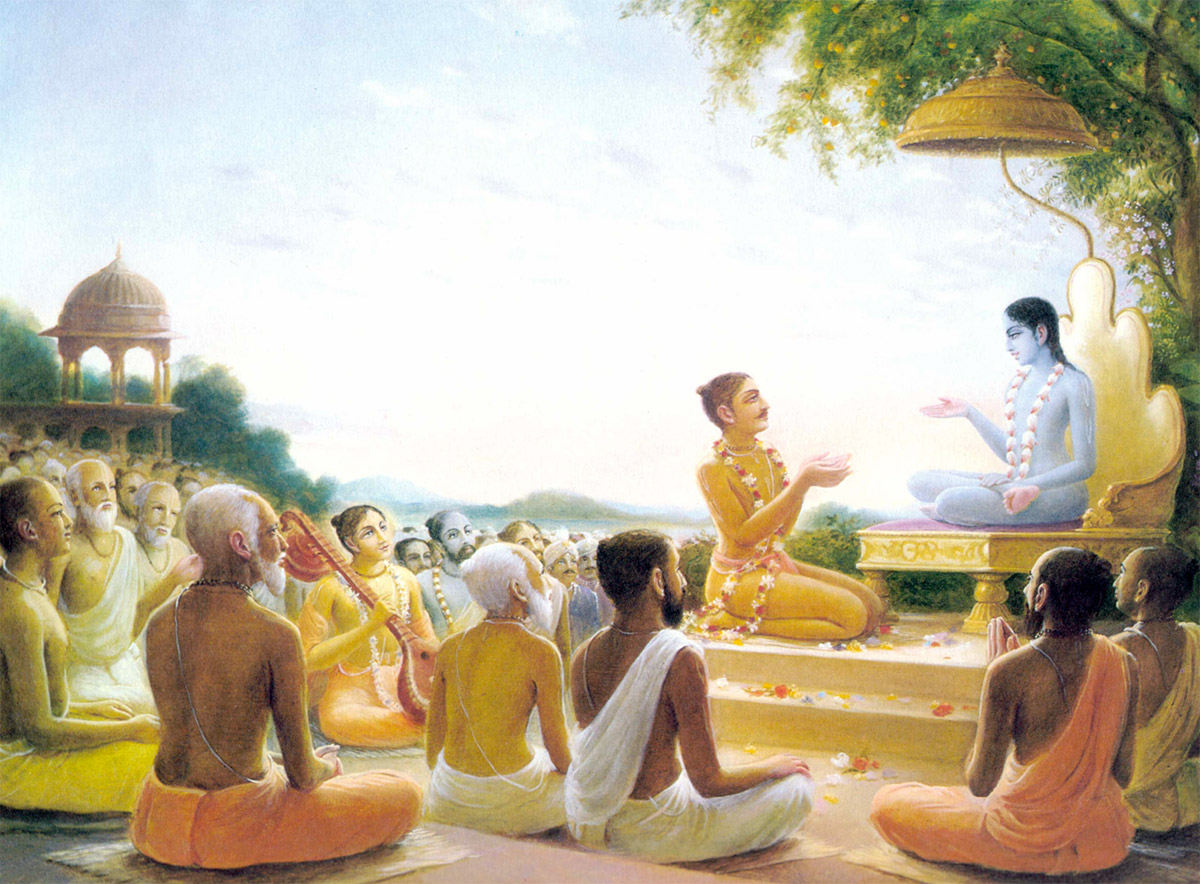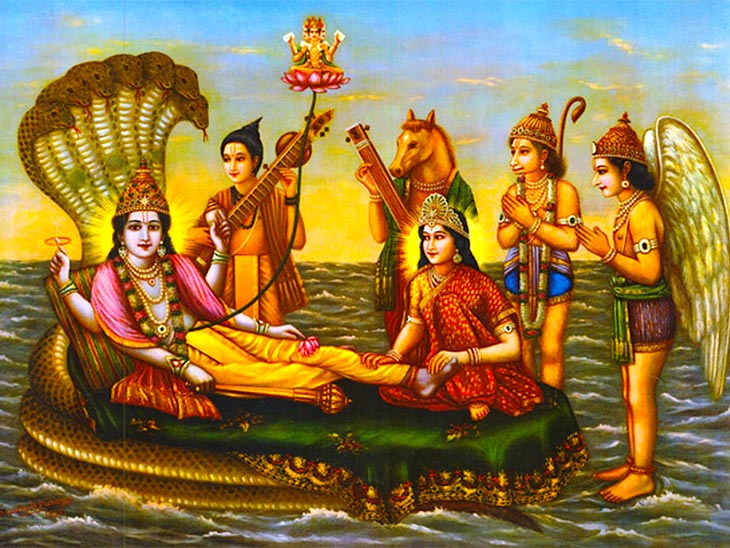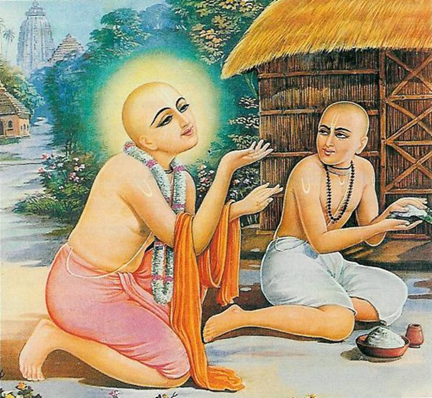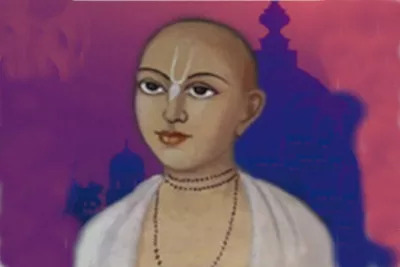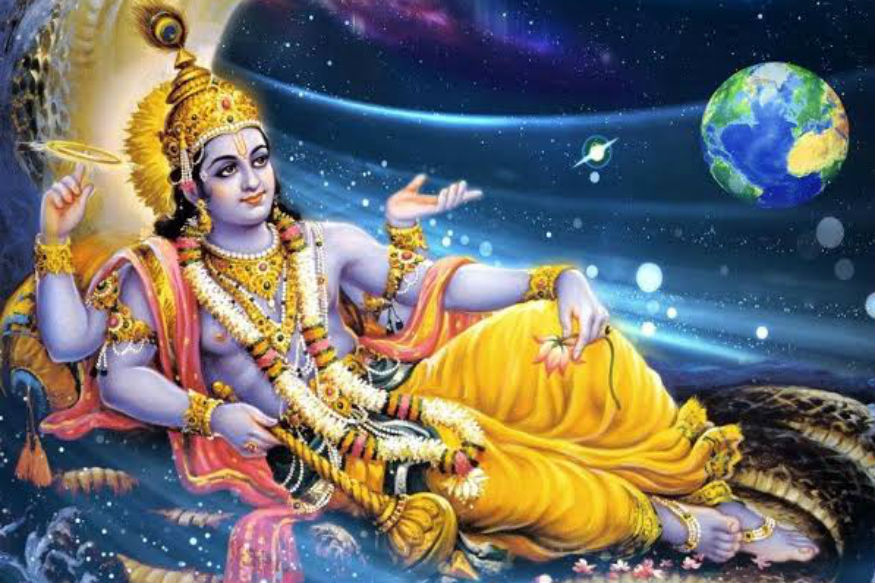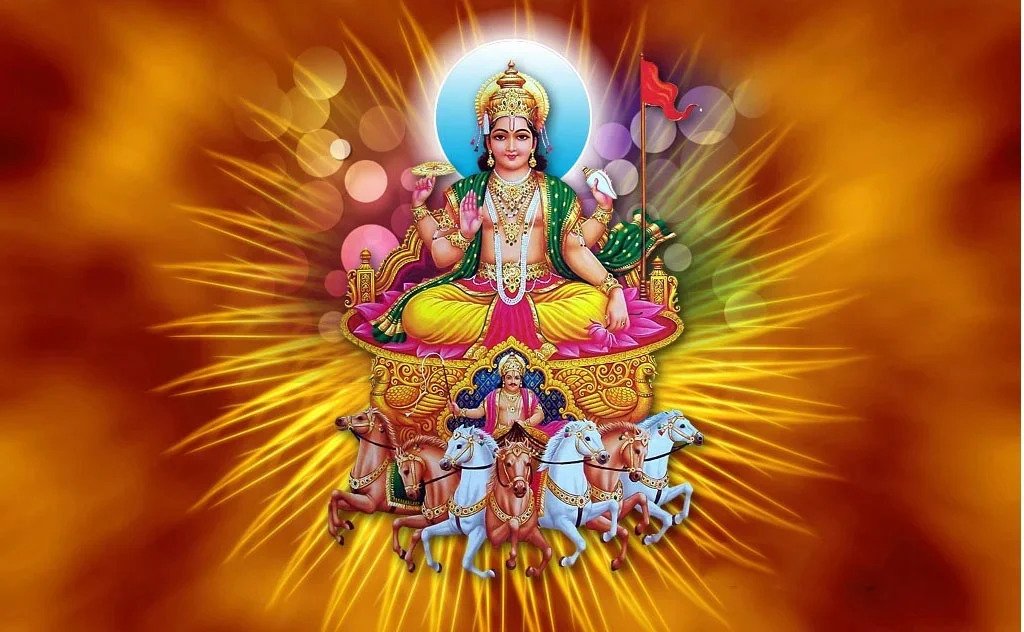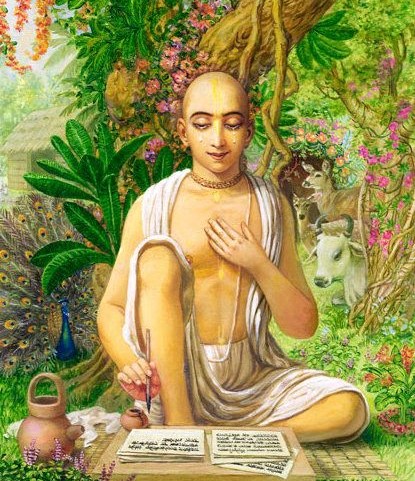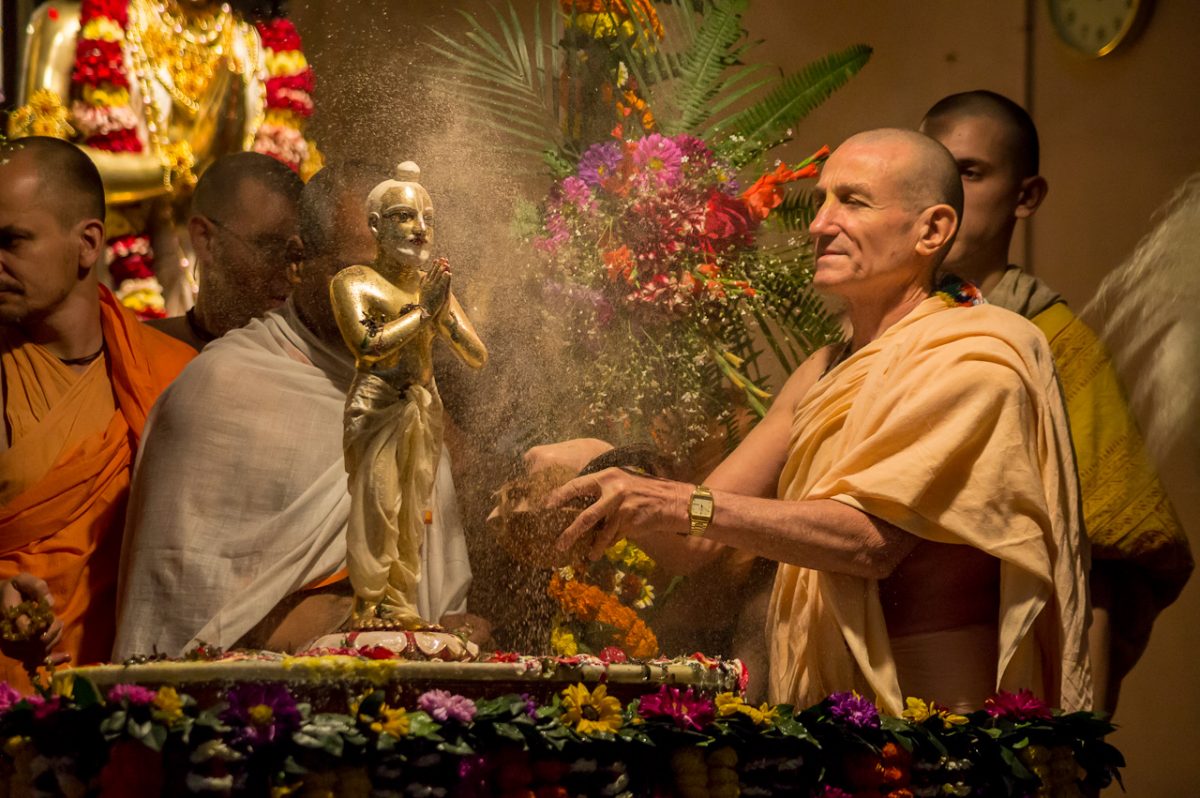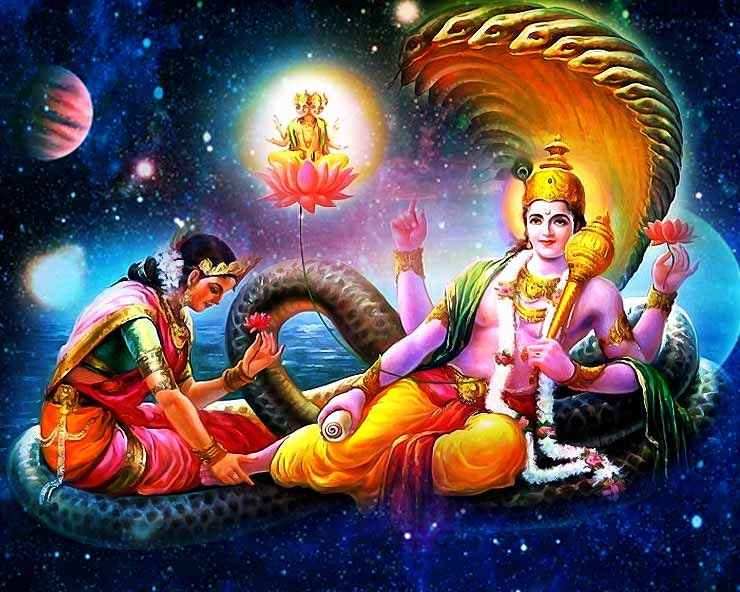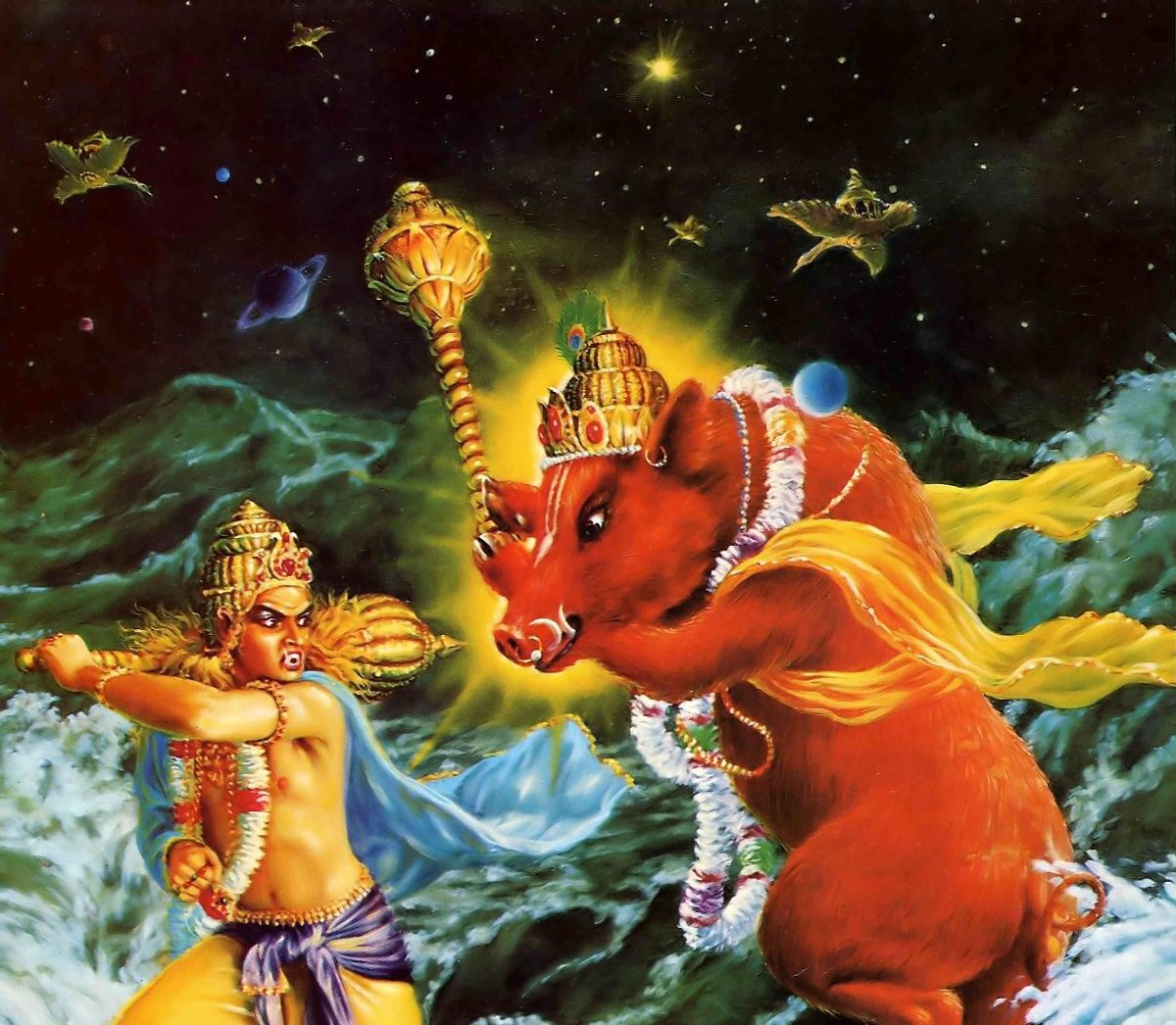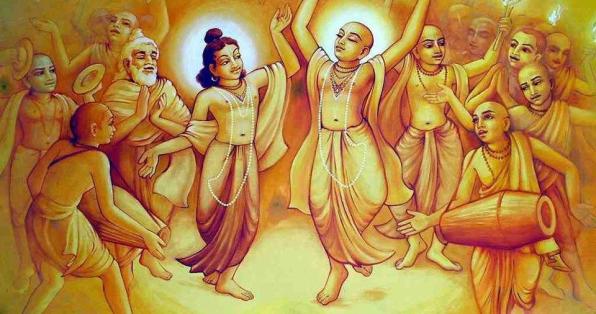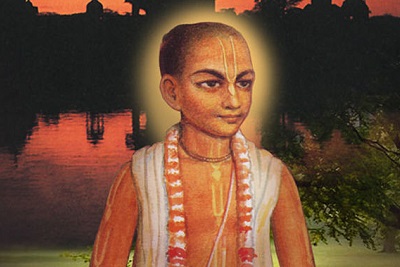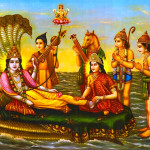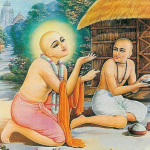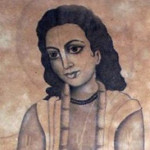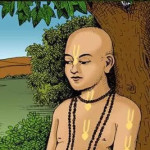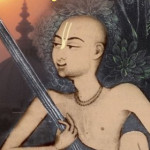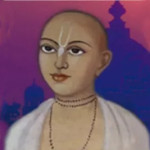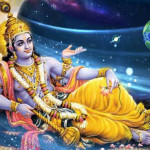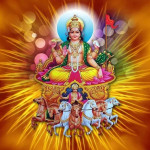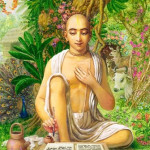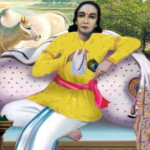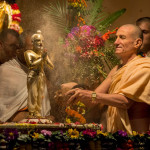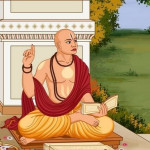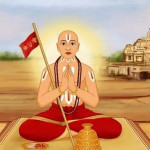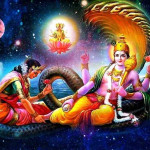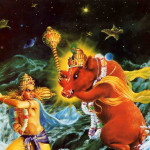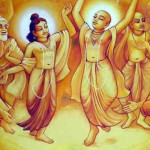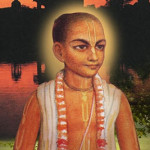Śrīmad-Bhāgvatam – Canto 5
(Q&A Format)
Why is it wrong to enjoy household life?
Srila Sukadeva Gosvami explains that Narada Muni perfectly instructed King Priyavrata about the mission of human life. The mission of human life is to realize one’s self and then gradually to go back home, back to Godhead. Since Narada Muni instructed the King fully on this subject, why did he again enter household life, which is the main cause of material bondage? Maharaja Pariksit was greatly astonished that King Priyavrata remained in household life, especially since he was not only a self-realized soul but also a first-class devotee of the Lord. A devotee actually has no attraction for household life, but surprisingly, King Priyavrata enjoyed household life very much. One may argue, “Why is it wrong to enjoy household life?” The reply is that in household life one becomes bound by the results of fruitive activities. The essence of household life is sense enjoyment, and as long as one engrosses his mind in working hard for sense enjoyment, one becomes bound by the reactions of fruitive activities. This ignorance of self-realization is the greatest defeat in human life. The human form of life is especially meant for getting out of the bondage of fruitive activities, but as long as one is forgetful of his life’s mission and acts like an ordinary animal–eating, sleeping, mating and defending–he must continue his conditioned life of material existence. Such a life is called svarupa-vismrti, forgetfulness of one’s real constitutional position. Therefore in Vedic civilization, one is trained in the very beginning of life as a brahmacari. A brahmacari must execute austerities and refrain from sex indulgence. Therefore if one is completely trained in the principles of brahmacarya, he generally does not enter household life. He is then called a naisthika-brahmacari, which indicates total celibacy. King Pariksit was thus astonished that the great King Priyavrata, although trained in the principles of naisthika-brahmacarya, entered household life.
Source: A.C. Bhaktivedanta Swami Prabhupada (2014 edition), “Srimad Bhagavatam”, Fifth Canto, Chapter 01 – Text 01
How seven oceans & seven islands were created?
When Maharaja Priyavrata, following the instruction of Lord Brahma accepted the royal throne, his father, Manu, left home for the forest. Maharaja Priyavrata then married Barhismati, the daughter of Visvakarma. In the womb of Barhismati, he begot ten sons, named Agnidhra, Idhmajihva, Yajnabahu, Mahavira, Hiranyareta, Ghrtaprstha, Savana, Medhatithi, Vitihotra and Kavi. He also begot one daughter, whose name was Urjasvati. Maharaja Priyavrata lived with his wife and family for many thousands of years. The impressions from the rims of Maharaja Priyavrata’s chariot wheels created seven oceans and seven islands. Of the ten sons of Priyavrata, three sons named Kavi, Mahavira and Savana accepted sannyasa, the fourth order of life, and the remaining seven sons became the rulers of the seven islands. Sometimes the planets in outer space are called islands. We have experience of various types of islands in the ocean, and similarly, the various planets, divided into fourteen lokas, are islands in the ocean of space. As Priyavrata drove his chariot behind the sun, he created seven different types of oceans and planetary systems, which altogether are known as Bhu-mandala, or Bhuloka. In the Gayatri mantra, we chant, om bhur bhuvah svah tat savitur varenyam. Above the Bhuloka planetary system is Bhuvarloka, and above that is Svargaloka, the heavenly planetary system. All these planetary systems are controlled by Savita, the sun-god. It is to be understood that all the dvipas, or islands, are surrounded by different types of oceans, and it is said herein that the breadth of each ocean is the same as that of the island it surrounds. The length of the oceans, however, cannot equal the length of the islands. According to Viraraghava Acarya, the breadth of the first island is 100,000 yojanas. One yojana equals eight miles, and therefore the breadth of the first island is calculated to be 800,000 miles. The water surrounding it must have the same breadth, but its length must be different.
Source: A.C. Bhaktivedanta Swami Prabhupada (2014 edition), “Srimad Bhagavatam”, Fifth Canto, Chapter 01 – Text 01, 31, & 33
Vaisnava-aparadha is one kind of impediment to devotional service.
Sri Caitanya Mahaprabhu warned His devotees not to commit Vaishnava-aparadha, an offence at the feet of a Vaishnava, which He described as the mad elephant offence. When a mad elephant enters a beautiful garden, it destroys everything, leaving a barren field. Similarly, the power of Vaishnava-aparadha is so great that even an advanced devotee becomes almost devoid of his spiritual assets if he commits it. Since Krishna consciousness is eternal, it cannot be destroyed altogether, but advancement may be checked for the time being. Thus Vaishnava-aparadha is one kind of impediment to devotional service. When one commits an offence at the feet of a Vaishnava, one must immediately apologize to such a personality so that his spiritual advancement may not be hampered.
Source: A.C. Bhaktivedanta Swami Prabhupada (2014 edition), “Srimad Bhagavatam”, Fifth Canto, Chapter 01 – Text 05
The devotional path is so auspicious that a devotee cannot be lost under any circumstances.
Because the material world is full of obstructions to advancement in Krishna consciousness, there may appear to be many impediments, yet Krishna, the Supreme Personality of Godhead, declares in Bhagavad-gita (9.31), kaunteya pratijanihi na me bhaktah pranasyati: once one has taken shelter at the lotus feet of the Lord, he cannot be lost. The devotional path is so auspicious that a devotee cannot be lost under any circumstances. This is described in the Srimad Bhagavad-gita by the Lord Himself Partha naiveha namutra vinasas tasya vidyate: “My dear Arjuna, for a devotee there is no question of being lost, either in this life or in the next.” (Bg. 6.40) In Bhagavad-gita (6.43) the Lord clearly explains how this is so.
tatra tam buddhi-samyogam labhate paurva-dehikam
yatate ca tato bhuyah samsiddhau kuru-nandana
By the order of the Lord, a perfect devotee sometimes comes to this material world like an ordinary human being. Because of his previous practice, such a perfect devotee naturally becomes attached to devotional service, apparently without cause. Despite all kinds of impediments due to surrounding circumstances, he automatically perseveres in devotional service and gradually advances until he once again becomes perfect. Bilvamangala Thakura had been an advanced devotee in his previous life, but in his next life he became greatly fallen and was attached to a prostitute. Suddenly, however, his entire behaviour was changed by the words of the very prostitute who had so much attracted him, and he became a great devotee. In the lives of exalted devotees, there are many such instances, proving that once one has taken to the shelter of the lotus feet of the Lord, he cannot be lost (kaunteya pratijanihi na me bhaktah pranasyati).
Source: A.C. Bhaktivedanta Swami Prabhupada (2014 edition), “Srimad Bhagavatam”, Fifth Canto, Chapter 01 – Text 05
Some of the Srimad-Bhagavatam predictions for kaliyuga.
Srimad-Bhagavatam predicts that in Kali-yuga the government will be entrusted with dasyu-dharma, which means the occupational duty of rogues and thieves. Modern heads of state are rogues and thieves who plunder the citizens instead of giving them protection. Rogues and thieves plunder without regard for the law, but in this age of Kali, as stated in Srimad-Bhagavatam, the lawmakers themselves plunder the citizens. The next prediction to be fulfilled, which is already coming to pass, is that because of the sinful activities of the citizens and the government, rain will become increasingly scarce. Gradually there will be complete drought and no production of food grains. People will be reduced to eating flesh and seeds, and many good, spiritually inclined people will have to forsake their homes because they will be too harassed by drought, taxation and famine. The Krishna consciousness movement is the only hope to save the world from such devastation. It is the most scientific and authorized movement for the actual welfare of the whole human society.
Source: A.C. Bhaktivedanta Swami Prabhupada (2014 edition), “Srimad Bhagavatam”, Fifth Canto, Chapter 02 – Text 01
Being self-sufficient, the Supreme Lord does not need huge sacrifices.
Being self-sufficient, the Supreme Lord does not need huge sacrifices. Fruitive activity for a more opulent life is for those who desire such material opulence for their interest. Yajnarthat karmano ‘nyatra loko ‘yam karma-bandhanah: [Bg. 3.9] if we do not act to satisfy the Supreme Lord, we engage in maya’s activities. We may construct a gorgeous temple and spend thousands of dollars, but such a temple is not required by the Lord. The Lord has many millions of temples for His residence and He does not need our attempt. He does not require opulent activity at all. Such engagement is meant for our benefit. If we engage our money in constructing a gorgeous temple, we are freed from the reactions of our endeavors. This is for our benefit. In addition, if we attempt to do something nice for the Supreme Lord, He is pleased with us and gives us His benediction. In conclusion, the gorgeous arrangements are not for the Lord’s sake but for our own. If we somehow or other receive blessings and benedictions from the Lord, our consciousness can be purified and we can become eligible to return home, back to Godhead.
Source: A.C. Bhaktivedanta Swami Prabhupada (2014 edition), “Srimad Bhagavatam”, Fifth Canto, Chapter 03 – Text 08
God is one.
God is one, and God does not belong to this or that religion. In Kali-yuga, different religious sects consider their God to be different from the God of others, but that is not possible. God is one, and He is appreciated according to different angles of vision. In this verse, the word kaivalyat means that God has no competitor. There is only one God. In the Svetasvatara Upanisad (6.8) it is said, na tat-samas cabhyadhikas ca drsyate: “No one is found to be equal to Him or greater than Him.” That is the definition of God.
Source: A.C. Bhaktivedanta Swami Prabhupada (2014 edition), “Srimad Bhagavatam”, Fifth Canto, Chapter 03 – Text 17
Sometimes great personalities such as demigods like Lord Brahma,Narada or Lord Shiva are also addressed as Bhagavan.
Lord Vishnu, the Supreme Self (Atma), is the source of everything, as explained in the Vedanta-sutra: janmady asya yatah. Because Brahma was born directly from Lord Vishnu, he is called Atma-yoni. He is also called Bhagavan, although generally, Bhagavan refers to the Supreme Personality of Godhead (Vishnu or Lord Krishna). Sometimes great personalities–such as demigods like Lord Brahma, Narada or Lord Shiva—are also addressed as Bhagavan because they carry out the purpose of the Supreme Personality of Godhead. Lord Brahma is called Bhagavan because he is the secondary creator of this universe. This designation, Bhagavan, is sometimes conferred upon a pure devotee by the grace of the Lord so that he will be very highly esteemed.
Source: A.C. Bhaktivedanta Swami Prabhupada (2014 edition), “Srimad Bhagavatam”, Fifth Canto, Chapter 05 – Text 07 & 39
The attachment to the family is the strongest illusion.
Sex serves as the natural attraction between man and woman, and when they are married, their relationship becomes more involved. Due to the entangling relationship between man and woman, there is a sense of illusion whereby one thinks, “This man is my husband,” or “This woman is my wife.” This is called hrdaya-granthi, “the hard knot in the heart.” This knot is very difficult to undo, even though a man and woman separate either for the principles of varnasrama or simply to get a divorce. In any case, the man always thinks of the woman, and the woman always thinks of the man. Thus a person becomes materially attached to family, property, and children, although all of these are temporary. The possessor, unfortunately, identifies with his property and wealth.
Sometimes, even after renunciation, one becomes attached to a temple or to the few things that constitute the property of a sannyasi, but such attachment is not as strong as a family attachment. The attachment to the family is the strongest illusion. In the Satyasamhita, it is stated:
brahmadya yajnavalkadya mucyante stri-sahayinah
bodhyante kecanaitesam visesam ca vido viduh
Sometimes it is found among exalted personalities like Lord Brahma that the wife and children are not a cause of bondage. On the contrary, the wife actually helps further spiritual life and liberation. Nonetheless, most people are bound by the knots of the marital relationship, and consequently, they forget their relationship with Krishna.
Source: A.C. Bhaktivedanta Swami Prabhupada (2014 edition), “Srimad Bhagavatam”, Fifth Canto, Chapter 05 – Text 08
Beings who possess living force are superior to dull matter.
There are two energies–material and spiritual–and both originally come from Krishna. Of the two energies manifest [spirit and dull matter], beings possessing living force [vegetables, grass, trees, and plants] are superior to dull matter [stone, earth, etc.]. Superior to non-moving plants and vegetables are worms and snakes, which can move. Superior to worms and snakes are animals that have developed intelligence. Superior to animals are human beings, and superior to human beings are ghosts because they have no material bodies. Superior to ghosts are the Gandharvas, and superior to them are the Siddhas. Superior to the Siddhas are the Kinnaras, and superior to them are the asuras. Superior to the asuras are the demigods, and of the demigods, Indra, the GandharvasKing of heaven, is supreme. Superior to Indra are the direct sons of Lord Brahma, sons like King Daksa, and supreme among Brahma’s sons is Lord Shiva. Since Lord Shiva is the son of Lord Brahma, Brahma is considered superior, but Brahma is also subordinate to Me, the Supreme Personality of Godhead. Because I am inclined to the Brahmanas, the Brahmanas are best of all. The Lord is worshipped as brahmanya-deva. The Lord is very fond of devotees, or Brahmanas. This does not refer to so-called caste brahmanas, but to qualified Brahmanas. A Brahmana should be qualified with the eight qualities, such as sama, dama, Satya and titiksa. The Brahmanas should always be worshipped, and under their guidance, the ruler should discharge his duty and rule the citizens. Unfortunately, in this age of Kali, the executive is not selected by very intelligent people, nor is he guided by qualified Brahmanas. Consequently, chaos results. The mass of people should be educated in Krishna consciousness so that according to the democratic process they can select a first-class devotee like Bharata Maharaja to head the government. If the head of the state is headed by qualified Brahmanas, everything is completely perfect.
Source: A.C. Bhaktivedanta Swami Prabhupada (2014 edition), “Srimad Bhagavatam”, Fifth Canto, Chapter 05 – Text 21 & 22
Life comes from matter or matter comes from life?
The modern theory that life evolves from matter is to some extent supported in this verse because it is stated, bhutesu virudbhyah. That is, the living entities evolve from vegetables, grass, plants and trees, which are superior to dull matter. In other words, matter also has the potency to manifest living entities in the form of vegetables. In this sense, life comes out of matter, but matter also comes out of life. As Krishna says in Bhagavad-gita (10.8), aham sarvasya prabhavo mattah sarvam pravartate: “I am the source of all spiritual and material worlds. Everything emanates from Me.”
There are two energies–material and spiritual–and both originally come from Krishna. Krishna is the supreme living being. Although it may be said that in the material world a living force is generated from matter, it must be admitted that originally matter is generated from the supreme living being. Nityo nityanam cetanas cetananam. The conclusion is that everything, both material and spiritual, is generated from the Supreme Being. From the evolutionary point of view, perfection is reached when the living entity attains the platform of a brahmana. A brahmana is a worshiper of the Supreme Brahman, and the Supreme Brahman worships the brahmana. In other words, the devotee is subordinate to the Supreme Lord, and the Lord is inclined to see to the satisfaction of His devotee. A brahmana is called dvija-deva, and the Lord is called dvija-deva-deva. He is the Lord of Brahmanas.
Source: A.C. Bhaktivedanta Swami Prabhupada (2014 edition), “Srimad Bhagavatam”, Fifth Canto, Chapter 05 – Text 21 & 22
Who is Brahmana?
A brahmana is one who has assimilated the Vedic conclusions by practising mind and sense control. He speaks the true version of all the Vedas. As confirmed in the Bhagavad-gita (15.15): vedais ca sarvair aham eva vedyah. By studying all the Vedas, one should come to understand the transcendental position of Lord Sri Krishna. One who actually assimilated the essence of the Vedas can preach the truth. He is compassionate to conditioned souls who are suffering the threefold miseries of this conditional world due to their not being Krishna conscious. A Brahmana should take pity on the people and preach Krishna consciousness in order to elevate them. Sri Krishna Himself, the Supreme Personality of Godhead, personally descends into this universe from the spiritual kingdom to teach conditioned souls about the values of spiritual life. He tries to induce them to surrender unto Him. Similarly, the Brahmanas do the same thing. After assimilating the Vedic instructions, they assist the Supreme Lord in His endeavor to deliver conditioned souls. The Brahmanas are very dear to the Supreme Lord due to their high sattva-guna qualities, and they also engage in welfare activities for all conditioned souls in the material world.
Source: A.C. Bhaktivedanta Swami Prabhupada (2014 edition), “Srimad Bhagavatam”, Fifth Canto, Chapter 05 – Text 24
The beginning of the Jain dharma.
When Lord Sri Krishna was present on this planet, a person named Paundraka imitated the four-handed Narayana and declared himself the Supreme Personality of Godhead. He desired to compete with Krishna. Similarly, during the time of Lord Rsabhadeva, King Arhat the King of Konka and Venka acted like a Paramahamsa and imitated Lord Rsabhadeva. He introduced a system of religion and took advantage of the fallen condition of the people in this age of Kali. King Arhat, being bewildered, gave up the Vedic principles, which are free from risk, and concocted a new system of a religion opposed to the Vedas. That was the beginning of the Jain dharma. Jains refer to Lord Rsabhadeva as their original preceptor. If such people are serious followers of Rsabhadeva, they must also take His instructions. Rsabhadeva gave His one hundred sons instructions whereby they could become free from the clutches of Maya. If one actually follows Rsabhadeva, he will certainly be delivered from the clutches of Maya and return home, back to Godhead.
Source: A.C. Bhaktivedanta Swami Prabhupada (2014 edition), “Srimad Bhagavatam”, Fifth Canto, Chapter 06 – Text 09 & 12
It is impossible to improve people’s material conditions.
Maya is very strong. In the name of philanthropy, altruism and communism, people are feeling compassion for suffering humanity throughout the world. Philanthropists and altruists do not realize that it is impossible to improve people’s material conditions. Material conditions are already established by the superior administration according to one’s karma. They cannot be changed. The only benefit we can render to suffering beings is to try to raise them to spiritual consciousness. Material comforts cannot be increased or decreased. It is, therefore, said in Srimad-Bhagavatam (1.5.18), tal labhyate duhkhavad anyatah sukham: “As far as material happiness is concerned, that comes without effort, just as tribulations come without effort.” Material happiness and pain can be attained without endeavor. One should not bother for material activities. If one is at all sympathetic or able to do good to others, he should endeavour to raise people to Krishna consciousness. In this way, everyone advances spiritually by the grace of the Lord.
For our instruction, Bharata Maharaja acted in such a way. We should be very careful not to be misled by so-called welfare activities conducted in bodily, terms. One should not give up his interest in attaining the favor of Lord Vishnu at any cost. Generally, people do not know this, or they forget it. Consequently, they sacrifice their original interest, the attainment of Vishnu’s favor, and engage in philanthropic activities for bodily comfort.
Source: A.C. Bhaktivedanta Swami Prabhupada (2014 edition), “Srimad Bhagavatam”, Fifth Canto, Chapter 08 – Text 10
How can a devotee be affected by his past misconduct and vicious activities.
In Brahma-samhita (5.54) it is said, karmani nirdahati kintu ca bhakti-bhajam: “For those engaged in devotional service, bhakti-bhajana, the results of past deeds are indemnified.” According to this, Bharata Maharaja could not be punished for his past misdeeds. The conclusion must be that Maharaja Bharata purposefully became over-addicted to the deer and neglected his spiritual advancement. To immediately rectify his mistake, for a short time he was awarded the body of a deer. This was just to increase his desire for mature devotional service. Although Bharata Maharaja was awarded the body of an animal, he did not forget what had previously happened due to his purposeful mistake. He was very anxious to get out of his deer body, and this indicates that his affection for devotional service was intensified, so much so that he was quickly to attain perfection in a brahmana body in the next life. It is with this conviction that we declare in our Back to Godhead magazine that devotees like the gosvamis living in Vrindavana who purposely commit some sinful activity are born in the bodies of dogs, monkeys and tortoises in that holy land. Thus they take on these lower life forms for a short while and after they give up those animal bodies, they are again promoted to the spiritual world. Such punishment is only for a short period, and it is not due to past karma. It may appear to be due to past karma, but it is offered to rectify the devotee and bring him to pure devotional service.
Source: A.C. Bhaktivedanta Swami Prabhupada (2014 edition), “Srimad Bhagavatam”, Fifth Canto, Chapter 08 – Text 26
We must be careful in the discharge of devotional service.
Those who have taken to Krishna consciousness should be very careful that not a single moment is wasted and that not a single moment is spent without chanting and remembering the Supreme Personality of Godhead and His activities. By His own actions and by the actions of His devotees, Krishna teaches us how to become cautious in devotional service. Through the medium of Bharata Maharaja, Krishna teaches us that we must be careful in the discharge of devotional service. If we want to keep our minds completely fixed without deviation, we must engage them in devotional service full time. As far as the members of the International Society for Krishna Consciousness are concerned, they have sacrificed everything to push on this Krishna consciousness movement. Yet they must take a lesson from the life of Bharata Maharaja to be very cautious and to see that not a single moment is wasted in frivolous talk, sleep or voracious eating.
Eating is not prohibited, but if we eat voraciously we shall certainly sleep more than required. Sense gratification ensues, and we may be degraded to a lower life form. In that way, our spiritual progress may be checked at least for the time being. The best course is to take the advice of Srila Rupa Gosvami: avyartha-kalatvam. We should see that every moment of our lives is utilized for the rendering of devotional service and nothing else. This is the secure position for one wanting to return home, back to Godhead.
Source: A.C. Bhaktivedanta Swami Prabhupada (2014 edition), “Srimad Bhagavatam”, Fifth Canto, Chapter 08 – Text 29
The mind is always telling us to do this or that.
There is one easy weapon with which the mind can be conquered–neglect. The mind is always telling us to do this or that; therefore we should be very expert in disobeying the mind’s orders. Gradually the mind should be trained to obey the orders of the soul. It is not that one should obey the orders of the mind. Srila Bhaktisiddhanta Sarasvati Thakura used to say that to control the mind one should beat it with shoes many times just after awakening and again before going to sleep. In this way, one can control the mind. This is the instruction of all the sastras. If one does not do so, one is doomed to follow the dictations of the mind. Another bona fide process is to abide strictly by the orders of the spiritual master and engage in the Lord’s service. Then the mind will be automatically controlled. Sri Caitanya Mahaprabhu has instructed Srila Rupa Gosvami:
brahmanda bhramite kona bhagyavan jiva
guru-Krishna-prasade paya bhakti-lata-bija
When one receives the seed of devotional service by the mercy of the guru and Krishna. the Supreme Personality of Godhead, one’s real life begins. If one abides by the orders of the spiritual master, by the grace of Krishna he is freed from service to the mind.
Source: A.C. Bhaktivedanta Swami Prabhupada (2014 edition), “Srimad Bhagavatam”, Fifth Canto, Chapter 11 – Text 17
All the luminaries – the stars, sun & moon – witness the activities of the conditioned soul.
It is said that household attraction resides in the wife because sex is the centre of household life: yan maithunadi-grhamedhi-sukham hi tuccham [SB 7.9.45]. A materialistic person, making his wife the centre of attraction, works very hard day and night. His only enjoyment in material life is sexual intercourse. Therefore karmis are attracted to women as friends or wives. Indeed, they cannot work without sex. Under the circumstances, the wife is compared to a whirlwind, especially during her menstrual period. Those who strictly follow the rules and regulations of householder life engage in sex only once a month, at the end of the menstrual period. As one looks forward to this opportunity, his eyes are overwhelmed by the beauty of his wife. Thus it is said that the whirlwind covers the eyes with dust. Such a lusty person does not know that all his material activities are being observed by different demigods, especially the sun god, and are being recorded for the karma of one’s next body. Astrological calculations are called Jyoti-Shastra. Because the Jyoti, or effulgence, in the material world, comes from the different stars and planets, the science is called Jyoti-Shastra, the science of the luminaries. By the calculations of Jyoti, our future is indicated. In other words, all the luminaries–the stars, sun and moon–witness the activities of the conditioned soul. Thus he is awarded a particular type of body. A lusty, person whose eyes are covered by the dust of the whirlwind or material existence does not at all consider that his activities are being observed by different stars and planets and are being recorded. Not knowing this, the conditioned soul commits all kinds of sinful activities for the satisfaction of his lusty desires.
Source: A.C. Bhaktivedanta Swami Prabhupada (2014 edition), “Srimad Bhagavatam”, Fifth Canto, Chapter 13 – Text 04
Women hunting is going on in the forest of the material world.
In a great forest, honeycombs are very important. People often go there to collect honey from the combs, and sometimes the bees attack and punish them. In human society, those who are not Krishna conscious remain in the forest of material life simply for the honey of sex life. Such debauchees are not at all satisfied with one wife. They want many women. Day after day, with great difficulty, they try to secure such women, and sometimes, while trying to taste this kind of honey, one is attacked by a woman’s kinsmen and chastised very heavily. By bribing others, one may secure another woman for enjoyment, yet another debauchee may kidnap her or offer her something better. This woman hunting is going on in the forest of the material world, sometimes legally, and sometimes illegally. Consequently, in this Krishna consciousness movement, the devotees are forbidden to have illicit sex. Thus they avoid so many difficulties. One should remain satisfied with one woman, being duly married. One can satisfy one’s lusty desires with his wife without creating disturbances in society and being punished for doing so.
Source: A.C. Bhaktivedanta Swami Prabhupada (2014 edition), “Srimad Bhagavatam”, Fifth Canto, Chapter 13 – Text 10
Human birth is a great opportunity for self-realization.
Human birth is a great opportunity for self-realization. One may take birth in a high planetary system among the demigods, but due to the profusion of material comforts, one cannot gain release from material bondage. Even on this earth those who are very opulent do not generally care to take to Krishna consciousness. An intelligent person actually interested in getting freed from the material clutches must associate with pure devotees. By such association, one can gradually become detached from the material attraction of money and women. Money and women are the basic principles of material attachment. Sri Chaitanya Mahaprabhu therefore advised those who are actually serious about returning back to Godhead to give up money and women in order to be fit to enter the kingdom of God. Money and women can be fully utilized in the service of the Lord, and one who can utilize them in this way can become freed from material bondage. Satam prasangan mama virya-samvido bhavanti hrt-karna-rasayanah kathah (Bhag. 3.25.25). Only in the association of devotees can one relish the glorification of the Supreme personality of Godhead. Just through a little association with a pure devotee one can become successful in his journey back to Godhead.
Source: A.C. Bhaktivedanta Swami Prabhupada (2014 edition), “Srimad Bhagavatam”, Fifth Canto, Chapter 13 – Text 21
The forest of material existence.
Merchants sometimes enter the forest to collect many rare things and sell them at a good profit in the city, but the forest path is always bedecked with dangers. When the pure soul wants to give up the Lord’s service to enjoy the material world, Krishna certainly gives him a chance to enter the material world. As stated in the premavivarta: Krishna-bahirmukhee haan bhog vaacha kare. This is the reason the pure spirit soul falls down to the material world. Due to his activities under the influence of the three modes of material nature, the living entity takes different positions in different species. Sometimes he is a demigod in the heavenly planets and sometimes a most insignificant creature in the lower planetary systems. In this regard, Srila Narottama dasa Thakura says, nana yoni Sada phire: the living entity passes through various species. kaaradary bhakshan kare:
: he is obliged to eat and enjoy abominable things. Tara Janma Adha-Pateyya: in this way his whole life is spoiled. Without the protection of an all-merciful Vaisnava, the conditioned soul cannot get out of the clutches of Maya. As stated in Bhagavad-gita (manah sasthanindriyani prakrti-sthani karsati), the living entity begins material life with his mind and the five knowledge-acquiring senses, and with these, he struggles for existence within the material world. These senses are compared to rogues and thieves within the forest. They take away a man’s knowledge and place him in a network of nescience.
Thus the senses are like rogues and thieves that plunder his spiritual knowledge. Over and above this, there are family members, wife, and children, who are exactly like ferocious animals in the forest. The business of such ferocious animals is to eat a man’s flesh. The living entity allows himself to be attacked by jackals and foxes (wife and children), and thus his real spiritual life is finished. In the forest of material life, everyone is envious like mosquitoes, and rats and mice are always creating disturbances. Everyone in this material world is placed in many awkward positions and surrounded by envious people and disturbing animals. The result is that the living entity in the material world is always plundered and bitten by many living entities. Nonetheless, despite these disturbances, he does not want to give up his family life, and he continues his fruitive activities in an attempt to become happy in the future. He thus becomes more and more entangled in the results of karma, and thus he is forced to act impiously. His witnesses are the sun during the day and the moon during the night. The demigods also witness, but the conditioned soul thinks that his attempts at sense gratification are not being witnessed by anyone. Sometimes, when he is detected, he temporarily renounces everything, but due to his great attachment for the body, his renunciation is given up before he can attain perfection. In this material world, there are many envious people. There is the tax-exacting government, which is compared to an owl, and there are invisible crickets that create unbearable sounds. The conditioned soul is certainly greatly harassed by the agents of material nature, but his intelligence is lost due to an undesirable association. In an attempt to gain relief from the disturbances of material existence, he falls victim to so-called yogis, sadhus, and incarnations who can display some magic but who do not understand devotional service. Sometimes the conditioned soul is bereft of all money, and consequently, he becomes unkind to his family members. In this material world, there is not a pinch of actual happiness, for which the conditioned soul is longing life after life. The government officials are like carnivorous Rakshasas who exact heavy taxes for the maintenance of the government. The hard-working conditioned soul is very saddened due to these heavy taxes.
The path of fruitive activities leads to difficult mountains, and sometimes the conditioned soul wants to cross these mountains, but he is never successful, and consequently, he becomes more and more aggrieved and disappointed. Becoming materially and financially embarrassed, the conditioned soul unnecessarily chastises his family. In the material condition, there are four principal needs, out of which sleep is compared to a python. When asleep, the conditioned soul completely forgets his real existence, and in sleep, he does not feel the tribulations of material life. Sometimes, being in need of money, the conditioned soul steals and cheats, although he may apparently be associated with devotees for spiritual advancement. His only business is getting out of the clutches of Maya, but due to improper guidance, he becomes more and more entangled in material dealings. This material world is simply an embarrassment and is composed of tribulations presented as happiness, distress, attachment, enmity, and envy. On the whole, it is simply full of tribulation and misery. When a person loses his intelligence due to attachment to wife and sex, his entire consciousness becomes polluted. He thus only thinks of the association of women. The time factor, which is like a serpent, takes away everyone’s life, including that of Lord Brahma and the insignificant ant. Sometimes the conditioned soul tries to save himself from inexorable time and thus takes shelter of some bogus savior. Unfortunately, the bogus savior cannot even save himself. How, then can he protect others? The bogus saviors do not care for bona fide knowledge received from qualified brahmanas and Vedic sources. Their only business is indulging in sex and recommending sexual freedom even for widows. Thus they are like monkeys in the forest. Srila Sukadeva Gosvami thus explains the material forest and its difficult path to Maharaja Pariksit.
Source: A.C. Bhaktivedanta Swami Prabhupada (2014 edition), “Srimad Bhagavatam”, Fifth Canto, Chapter 14 – Introduction
According to spiritual life gold should be avoided as far as possible.
Pariksit Maharaja told Kali-yuga to leave his kingdom immediately and reside in four places: brothels, liquor shops, slaughterhouses and gambling casinos. However, Kali-yuga requested him to give him only one place where these four places are included, and Pariksit Maharaja gave him the place where gold is stored. Gold encompasses the four principles of sin, and therefore, according to spiritual life, gold should be avoided as far as possible. If there is gold, there is certainly illicit sex, meat-eating, gambling and intoxication. The color of gold is very glittering, and a materialistic person becomes very much attracted by its yellow color. However, this gold is actually a type of stool. A person with a bad liver generally passes yellow stool. The color of this stool attracts a materialistic person, just as the will-o’-the-wisp attracts one who needs heat.
Source: A.C. Bhaktivedanta Swami Prabhupada (2014 edition), “Srimad Bhagavatam”, Fifth Canto, Chapter 14 – Text 07
Illicit sex is the most prominent sin due to lusty desire.
“In Bhagavad-gita (7.11) it is said: dharmaviruddho bhutesu kamo ‘smi bharatarsabha. Sex is allowed only for the begetting of children, not for enjoyment. One can indulge in sex to beget a good child for the benefit of the family, society and world. Otherwise, sex is against the rules and regulations of religious life. A materialistic person does not believe that everything is managed in nature, and he does not know that if one does something wrong, he is witnessed by different demigods. A person enjoys illicit sex, and due to his blind, lusty desire he thinks that no one can see him, but this illicit sex is thoroughly observed by the agents of the Supreme Personality of Godhead. Therefore the person is punished in so many ways. Presently in Kali-yuga there are many pregnancies due to illicit sex, and sometimes abortions ensue. These sinful activities are witnessed by the agents of the Supreme personality of Godhead, and a man and woman who create such a situation are punished in the future by the stringent laws of material nature (daivi hy esa guna-mayi mama maya duratyaya). Illicit sex is never excused, and those who indulge in it are punished life after life. As confirmed in Bhagavad-gita (16.20):
asurim yonim apanna mudha janmani janmani
mam aprapyaiva kaunteya tato yanty adhamam gatim
“Attaining repeated birth among the species of demoniac life, such persons can never approach Me. Gradually they sink down to the most abominable type of existence.” The Supreme Personality of Godhead does not allow anyone to act against the stringent laws of material nature; therefore illicit sex is punished life after life. Illicit sex creates pregnancies, and these unwanted pregnancies lead to abortion. Those involved become implicated in these sins, so much so that they are punished in the same way the next life. Thus in the next life they also enter the womb of a mother and are killed in the same way. All these things can be avoided by remaining on the transcendental platform of Krishna consciousness. In this way one does not commit sinful activity. Illicit sex is the most prominent sin due to lusty desire. When one associates with the mode of passion, he is implicated in suffering life after life. ”
Source: A.C. Bhaktivedanta Swami Prabhupada (2014 edition), “Srimad Bhagavatam”, Fifth Canto, Chapter 14 – Text 09
Krishna says that He takes everything away from the devotee whom He especially favors.
The main disease in material life is the bodily conception. Being baffled again and again in material activity, the conditioned soul temporarily thinks of the futility of material enjoyment, but he again tries the same thing. By the association of devotees, a person may become convinced of the material futility, but he cannot give up his engagement, although he is very eager to return home, back to Godhead. Under these circumstances, the Supreme personality of Godhead, who is situated in everyone’s heart, compassionately takes away all the material possessions of such a devotee. As stated in Srimad- Bhagavatam (10.88.8): yasyaham anugrhnami harisye tad-dhanam sanaih. Lord Krishna says that He takes everything away from the devotee whom He especially favors when that devotee is overly attached to material possessions. When everything is taken away, the devotee feels helpless and frustrated in society, friendship and love. He feels that his family does not care for him any longer, and he therefore completely surrenders unto the lotus feet of the Supreme Lord. This is a special favor granted by the Lord to a devotee who cannot fully surrender to the Lord due to a strong bodily conception. As explained in Chaitanya-caritamrta (Madhya 22.39): ami–vijna, ei murkhe ‘visaya’ kene diba. The Lord understands the devotee who hesitates to engage in the Lord’s service, not knowing whether he should again try to revive his material life. After repeated attempts and failures, he fully surrenders to the lotus feet of the Lord. The Lord then gives him directions, and, attaining happiness, he forgets all material engagement.
Source: A.C. Bhaktivedanta Swami Prabhupada (2014 edition), “Srimad Bhagavatam”, Fifth Canto, Chapter 14 – Text 10
To get some material benefit, the conditioned soul approaches pseudo sannyasis and yogis.
“Cheaters are always there to manufacture their own way of spiritual realization. To get some material benefit, the conditioned soul approaches these pseudo sannyasis and yogis for cheap blessings, but he does not receive any benefit from them, either spiritual or material. In this age there are many cheaters who show some jugglery and magic. They even create gold to amaze their followers, and their followers accept them as God. This type of cheating is very prominent in Kali-yuga. Visvanatha Cakravarti Thakura describes the real guru in this way.
samsara-davanala-lidha-lokatranaya karunya-ghanaghanatvam
praptasya kalyana-gunarnavasya vande guroh sri-caranaravindam
One should approach a guru who can extinguish the blazing fire of this material world, the struggle for existence. People want to be cheated and therefore they go to yogis and svamis who play tricks, but tricks do not mitigate the miseries of material life. If being able to manufacture gold is a criterion for becoming God, then why not accept Krishna, the proprietor of the entire universe, wherein there are countless tons of gold? As mentioned before, the color of gold is compared to the will-O’-the-wisp or yellow stool; therefore one should not be allured by gold-manufacturing gurus but should sincerely approach a devotee like Jada Bharata. Jada Bharata instructed Rahugana Maharaja so well that the King was relieved from the bodily conception. One cannot become happy by accepting a false guru. A guru should be accepted as advised in Srimad-Bhagavatam (11.3.21). Tasmad gurum prapadyeta jijnasuh sreya uttamam: One should approach a bona fide guru to inquire about the highest benefit of life. Such a guru is described as follows: sabde pare ca nisnatam. Such a guru does not manufacture gold or juggle words. He is well versed in the conclusions of Vedic knowledge (vedais ca sarvair aham eva vedyah). He is freed from all material contamination and is fully engaged in Krishna’s service. If one is able to obtain the dust of the lotus feet of such a guru, his life becomes successful. Otherwise he is baffled both in this life and in the next.”
Source: A.C. Bhaktivedanta Swami Prabhupada (2014 edition), “Srimad Bhagavatam”, Fifth Canto, Chapter 14 – Text 13
Highly advanced spiritualists recommends that one should not enter the grhastha-ashrama.
The so-called comfortable family position is compared to a dark well in a field. If one falls in a dark well covered by grass, his life is lost, despite his cry for rescue. Highly advanced spiritualists therefore recommend that one should not enter the grhastha-asrama. It is better to prepare oneself in the brahmacarya-asrama for austerities and remain a pure brahmacari throughout one’s life so that one will not feel the piercing thorns of material life in the grhastha-asrama. In the grhastha-asrama one has to accept invitations from friends and relatives and perform ritualistic ceremonies. By so doing, one becomes captivated by such things, although he may not have sufficient resources to continue them. To maintain the grhastha life-style, one has to work very hard to acquire money. Thus one is implicated in material life, and he suffers the thorn pricks.
Source: A.C. Bhaktivedanta Swami Prabhupada (2014 edition), “Srimad Bhagavatam”, Fifth Canto, Chapter 14 – Text 18
Many devotees fall down due to illicit sex.
Material life is such that due to indulgence in illicit sex, gambling, intoxication and meat-eating, the conditioned soul is always in a dangerous condition. Meat-eating and intoxication excite the senses more and more, and the conditioned soul falls victim to women. In order to keep women, money is required, and to acquire money, one begs, borrows or steals. Indeed, he commits abominable acts that cause him to suffer both in this life and in the next. Consequently illicit sex must be stopped by those who are spiritually inclined or who are on the path of spiritual realization. Many devotees fall down due to illicit sex. They may steal money and even fall down from the highly honored renounced order. Then for a livelihood they accept menial services and become beggars. It is therefore said in the sastras, yan maithunadi-grhamedhi-sukham hi tuccham: materialism is based on sex, whether licit or illicit. Sex is full of dangers even for those who are addicted to household life. Whether one has a license for sex or not, there is great trouble. Bahu-duhkha-bhak: after one indulges in sex, many volumes of miseries ensue. One suffers more and more in material life. A miserly person cannot properly utilize the wealth he has, and similarly a materialistic person misuses the human form. Instead of using it for spiritual emancipation, he uses the body for sense gratification. Therefore he is called a miser.
Source: A.C. Bhaktivedanta Swami Prabhupada (2014 edition), “Srimad Bhagavatam”, Fifth Canto, Chapter 14 – Text 22
Those who come to the human form through the quality of tamo guna were monkeys in their last life.
By fulfilling the process of evolution from the aquatics to the animal platform, a living entity eventually reaches the human form. The three modes of material nature are always working in the evolutionary process. Those who come to the human form through the quality of sattva-guna were cows in their last animal incarnation. Those who come to the human form through the quality of rajo-guna were lions in their last animal incarnation. And those who come to the human form through the quality of tamo-guna were monkeys in their last animal incarnation. In this age, those who come through the monkey species are considered by modern anthropologists like Darwin to be descendants of monkeys. We receive information herein that those who are simply interested in sex are actually no better than monkeys. Monkeys are very expert in sexual enjoyment, and sometimes sex glands are taken from monkeys and placed in the human body so that a human being can enjoy sex in old age. In this way modern civilization has advanced. Many monkeys in India were caught and sent to Europe so that their sex glands could serve as replacements for those of old people. Those who actually descend from the monkeys are interested in expanding their aristocratic families through sex. In the Vedas there are also certain ceremonies especially meant for sexual improvement and promotion to higher planetary systems, where the demigods are enjoying sex. The demigods are also very much inclined toward sex because that is the basic principle of material enjoyment.
Source: A.C. Bhaktivedanta Swami Prabhupada (2014 edition), “Srimad Bhagavatam”, Fifth Canto, Chapter 14 – Text 30
The perfection of life is to remember Narayana (Krishna) at the time of death.
The entire Vedas are meant for the understanding of karma, jnana and yoga–fruitive activity, speculative knowledge and mystic yoga. Whatever way of spiritual realization we accept, the ultimate goal is Narayana, the Supreme personality of Godhead. The living entities are eternally connected with Him via devotional service. As stated in Srimad-Bhagavatam, ante narayana-smrtih: the perfection of life is to remember Narayana at the time of death. Although Maharaja Bharata appeared in the royal family, he became neglectful and took birth as a deer. Even though in the body of a deer, Maharaja Bharata did not forget the Supreme Personality of Godhead; therefore when he was giving up the body of a deer, he loudly uttered the following prayer: “The Supreme Personality of Godhead is sacrifice personified. He gives the results of ritualistic activity. He is the protector of religious systems, the personification of mystic yoga, the source of all knowledge, the controller of the entire creation, and the Supersoul in every living entity. He is beautiful and attractive. I am quitting this body offering obeisances unto Him and hoping that I may perpetually engage in His transcendental loving service.” Uttering this, Maharaja Bharata left his body. Because he was very cautious within his deer body, he took birth in a brahmana family as Jada Bharata. During this lifetime, he remained perfectly Krishna conscious and preached the gospel of Krishna consciousness directly, beginning with his instructions to Maharaja Rahugana.
Source: A.C. Bhaktivedanta Swami Prabhupada (2014 edition), “Srimad Bhagavatam”, Fifth Canto, Chapter 14 – Text 45
People of this age are slow to understand the opulence of the Supreme Personality of Godhead.
By the arrangement of the Supreme Personality of Godhead, the rivers on some planets produce gold on their banks. The poor inhabitants of this earth, because of their incomplete knowledge, are captivated by a so-called bhagavan who can produce a small quantity of gold. However, it is understood that in a higher planetary system in this material world, the mud on the banks of the Jambu-nadi mixes with jambu juice, reacts with the sunshine in the air, and automatically produces huge quantities of gold. Thus the men and women are decorated there by various golden ornaments, and they look very nice. Unfortunately, on earth there is such a scarcity of gold that the governments of the world try to keep it in reserve and issue paper currency. Because that currency is not backed up by gold, the paper they distribute as money is worthless, but nevertheless the people on earth are very proud of material advancement. In modern times, girls and ladies have ornaments made of plastic instead of gold, and plastic utensils are used instead of golden ones, yet people are very proud of their material wealth. Therefore the people of this age are described as mandah sumanda-matayo manda-bhagya hy upadrutah (Bhag. 1.1.10). In other words, they are extremely bad and slow to understand the opulence of the Supreme Personality of Godhead. They have been described as sumanda-matayah because their conceptions are so crippled that they accept a bluffer who produces a little gold to be God. Because they have no gold in their possession, they are actually poverty stricken, and therefore they are considered unfortunate.
Source: A.C. Bhaktivedanta Swami Prabhupada (2014 edition), “Srimad Bhagavatam”, Fifth Canto, Chapter 16 – Text 20-21
Descent of Ganges in the universe.
Lord Vishnu, the enjoyer of all sacrifices, appeared as Vamanadeva in the sacrificial arena of Bali Maharaja. Then He extended His left foot to the end of the universe and pierced a hole in its covering with the nail of His big toe. Through the hole, the pure water of the Causal Ocean entered this universe as the Ganges River. Having washed the lotus feet of the Lord, which are covered with reddish powder, the water of the Ganges acquired a very beautiful pink color. Every living being can immediately purify his mind of material contamination by touching the transcendental water of the Ganges, yet its waters remain ever pure. Because the Ganges directly touches the lotus feet of the Lord before descending within this universe, she is known as Vishnupadi. Later she received other names like Jahnavi and Bhagirathi. After one thousand millenniums, the water of the Ganges descended on Dhruvaloka, the topmost planet in this universe and then to the seven planets beneath Dhruvaloka. Then it is carried to the moon by innumerable celestial airplanes, and then it falls to the top of Mount Meru, which is known as Sumeru-parvata. In this way, the water of the Ganges finally reaches the lower planets and the peaks of the Himalayas, and from there it flows through Hardwar and throughout the plains of India, purifying the entire land.
Source: A.C. Bhaktivedanta Swami Prabhupada (2014 edition), “Srimad Bhagavatam”, Fifth Canto, Chapter 17 – Text 01 & 04
Only the most fortunate persons come in contact with the guru.
Among all the living entities wandering throughout the universe, one who is most fortunate comes in contact with a representative of the Supreme Personality of Godhead and thus gets the opportunity to execute devotional service. Those who are sincerely seeking the favor of Krishna come in contact with a guru, a bona fide representative of Krishna. The Mayavadis indulging in mental speculation and the karmis desiring the results of their actions cannot become gurus. A guru must be a direct representative of Krishna who distributes the instructions of Krishna without any change. Thus only the most fortunate persons come in contact with the guru. As confirmed in the Vedic literatures, tad-vijnanartham sa gurum evabhigacchet: one has to search out a guru to understand the affairs of the spiritual world. Srimad-Bhagavatam also confirms this point. Tasmad gurum prapadyeta jijnasuh sreya uttamam: one who is very interested in understanding the activities in the spiritual world must search out a guru–a bona fide representative of Krishna.
Source: A.C. Bhaktivedanta Swami Prabhupada (2014 edition), “Srimad Bhagavatam”, Fifth Canto, Chapter 17 – Text 11
Heavenly places of enjoyment in material world.
The heavenly places of enjoyment are divided into three groups: the celestial heavenly planets, the heavenly places on bhumandala (earth plain), and the bila heavenly places, which are found in the lower regions. Among these three classes of heavenly places (bhauma-svarga-pada-ni), the heavenly places on earth plain are the eight varsas other than Bharata-varsa (planet earth). In Bhagavad-gita (9.21) Krishna says, ksine punye martya-lokam visanti: when the persons living in the heavenly planets exhaust the results of their pious activities, they return to this earth. In this way, they are elevated to the heavenly planets, and then they again fall to the earthly planets. This process is known as brahmanda bhramana, wandering up and down throughout the universes. Those who are intelligent–in other words, those who have not lost their intelligence–do not involve themselves in this process of wandering up and down. They take to the devotional service of the Lord so that they can ultimately penetrate the covering of this universe and enter the spiritual kingdom. Then they are situated on one of the planets known as Vaikunthaloka or, still higher. Krishnaloka (Goloka Vrindavana).
In these eight varsas, or tracts of land, human beings live ten thousand years according to earthly calculations. All the inhabitants are almost like demigods. They have the bodily strength of ten thousand elephants. Indeed, their bodies are as sturdy as thunderbolts. The youthful duration of their lives is very pleasing, and both men and women enjoy sexual union with great pleasure for a long time. After years of sensual pleasure–when a balance of one year of life remains–the wife conceives a child. Thus the standard of pleasure for the residents of these heavenly regions is exactly like that of the human beings who lived during Treta-yuga. There are four yugas: Satya-yuga, Treta-yuga, Dvapara-yuga and Kali-yuga. During the first yuga, Satyayuga, people were very pious, everyone practiced the mystic yoga system for spiritual understanding and realization of God. Because everyone was always absorbed in samadhi, no one was interested in material sense enjoyment. During Treta-yuga, people enjoyed sense pleasure without tribulations. Material miseries began in Dvapara-yuga, but they were not very stringent. Stringent material miseries really began from the advent of Kali-yuga. Another point in this verse is that in all eight of these heavenly varsas, although men and women enjoy sex pleasure, there is no pregnancy. Pregnancy takes place only in lower-grade life. For example, animals like dogs and hogs become pregnant twice a year, and each time they beget at least half a dozen offspring. Even lower species of life such as snakes give birth to hundreds of young at one time. This verse informs us that in grades of life higher than ours, pregnancy occurs once in a lifetime. People still have a sex life, but there is no pregnancy. The inhabitants of those planets enjoy life in a pleasing atmosphere of clear lakes filled with newly grown lotus flowers and gardens filled with fruits, flowers, various kinds of birds and humming bees. In that atmosphere, they enjoy life with their very beautiful wives, who are always sexually stimulated. Nonetheless, they are all devotees of the Supreme Personality of Godhead. The inhabitants of this earth also desire such heavenly enjoyment, but when they somehow or other achieve imitation pleasures like sex and intoxication, they completely forget the service of the Supreme Lord. In the heavenly planets, however, although the residents enjoy superior sense gratification, they never forget their positions as eternal servants of the Supreme Being.
In the spiritual world, people are not very attracted to sex life, due to their exalted devotional attitude. Practically speaking, there is no sex life in the spiritual world, but even if sometimes it does occur, there is no pregnancy at all. On the planet earth, however, human beings do become pregnant, although the tendency is to avoid having children. In this sinful age of Kali, people have even taken to the process of killing the child in the womb. This is the most degraded practice; it can only perpetuate the miserable material conditions of those who perform it.
Source: A.C. Bhaktivedanta Swami Prabhupada (2014 edition), “Srimad Bhagavatam”, Fifth Canto, Chapter 17 – Text 11, 12 & 13
In the heavenly planets, although men and women enjoy sex pleasure, there is no pregnancy.
“There are four yugas: Satya-yuga, Treta-yuga, Dvapara-yuga and Kali-yuga. During the first yuga, Satyayuga, people were very pious. Everyone practiced the mystic yoga system for spiritual understanding and realization of God. Because everyone was always absorbed in samadhi, no one was interested in material sense enjoyment. During Treta-yuga, people enjoyed sense pleasure without tribulations. Material miseries began in Dvapara-yuga, but they were not very stringent. Stringent material miseries really began from the advent of Kali-yuga. Another point in this verse is that in all eight of these heavenly varsas, although men and women enjoy sex pleasure, there is no pregnancy. This verse informs us that in grades of life higher than ours, pregnancy occurs once in a lifetime. The inhabitants of those planets enjoy life in a pleasing atmosphere of clear lakes filled with newly grown lotus flowers and gardens filled with fruits, flowers, various kinds of birds and humming bees. In that atmosphere they enjoy life with their very beautiful wives, who are always sexually stimulated. Nonetheless, they are all devotees of the Supreme Personality of Godhead. The inhabitants of this earth also desire such heavenly enjoyment, but when they somehow or other achieve imitation pleasures like sex and intoxication, they completely forget the service of the Supreme Lord. In the heavenly planets, however, although the residents enjoy superior sense gratification, they never forget their positions as eternal servants of the Supreme Being.
People still have sex life, but there is no pregnancy. In the spiritual world, people are not very attracted to sex life, due to their exalted devotional attitude. Practically speaking, there is no sex life in the spiritual world, but even if sometimes it does occur, there is no pregnancy at all. Pregnancy takes place only in lower-grade life. On the planet earth, human beings do become pregnant, although the tendency is to avoid having children. In this sinful age of Kali, people have even taken to the process of killing the child in the womb. This is the most degraded practice; it can only perpetuate the miserable material conditions of those who perform it.”
Source: A.C. Bhaktivedanta Swami Prabhupada (2014 edition), “Srimad Bhagavatam”, Fifth Canto, Chapter 17 – Text 12 & 13
Lord Shiva is always meditating upon Lord Sankarsana in trance.
The quadruple expansion of the Supreme Lord is composed of Vasudeva, Pradyumna, Aniruddha and Sankarsana. Sankarsana, the fourth expansion, is certainly transcendental, but because His activities of destruction in the material world are in the mode of ignorance, He is known as tamasi, the Lord’s form in the mode of ignorance. Lord Shiva knows that Sankarsana is the original cause of his own existence, and thus he always meditates upon Him in trance. Lord Shiva is in charge of the destruction of the material world. Lord Brahma creates the material world, Lord Vishnu maintains it, and Lord Shiva destroys it. Because destruction is in the mode of ignorance, Lord Shiva and his worshipable Deity, Sankarsana, are technically called tamasi. Lord Shiva is the incarnation of tamo-guna. Since both Lord Shiva and Sankarsana are always enlightened and situated in the transcendental position, they have nothing to do with the modes of material nature–goodness, passion and ignorance–but because their activities involve them with the mode of ignorance, they are sometimes called tamasi.
Source: A.C. Bhaktivedanta Swami Prabhupada (2014 edition), “Srimad Bhagavatam”, Fifth Canto, Chapter 17 – Text 16
Qualities of a Vaishnava.
Krishnadasa Kaviraja lists the following twenty-six good qualities of a Vaisnava: (1) He is very kind to everyone. (2) He does not make anyone his enemy. (3) He is truthful. (4) He is equal to everyone. (5) No one can find any fault in him. (6) He is magnanimous. (7) He is mild. (8) He is always clean. (9) He is without possessions. (10) He works for everyone’s benefit. (11) He is very peaceful. (12) He is always surrendered to Krishna. (13) He has no material desires. (14) He is very meek. (15) He is steady. (16) He controls his senses. (17) He does not eat more than required. (18) He is not influenced by the Lord’s illusory energy. (19) He offers respect to everyone. (20) He does not desire any respect for himself. (21) He is very grave. (22) He is merciful. (23) He is friendly. (24) He is poetic. (25) He is expert. (26) He is silent.
Source: A.C. Bhaktivedanta Swami Prabhupada (2014 edition), “Srimad Bhagavatam”, Fifth Canto, Chapter 18 – Text 12
Krishna is the real husband of all living entities.
“Laksmidevi (Rama) shows compassion toward women who worship the Lord for the benediction of possessing a good husband. Although such women desire to be happy with children, wealth, a long duration of life and everything dear to them, they cannot possibly do so. In the material world, a so-called husband is dependent on the control of the Supreme Personality of Godhead. There are many examples of a woman whose husband, being dependent on the result of his own fruitive actions, cannot maintain his wife, her children her wealth or her duration of life. Therefore, factually the only real husband of all women is Krishna, the supreme husband. Because the gopis were liberated souls, they understood this fact. Therefore they rejected their material husbands and accepted Krishna as their real husband. Krishna is the real husband not only of the gopis, but of every living entity. Everyone should perfectly understand that Krishna is the real husband of all living entities, who are described in the Bhagavad-gita as prakrti (female), not purusa (male). In Bhagavad-gita (10.12), only Krishna is addressed as purusa:
param brahma param dhama pavitram paramam bhavan
purusam sasvatam divyam adi-devam ajam vibhum
“You are the Supreme Brahman, the ultimate, the supreme abode and purifier, the Absolute Truth and the eternal divine person. You are the primal God, transcendental and original, and You are the unborn and all-pervading beauty.” Krishna is the original purusa, and the living entities are prakrti. Thus Krishna is the enjoyer, and all living entities are meant to be enjoyed by Him. Therefore any woman who seeks a material husband for her protection, or any man who desires to become the husband of a woman, is under illusion. To become a husband means to maintain a wife and children nicely by supplying wealth and security. However, a material husband cannot possibly do this, for he is dependent on his karma. Karmana-daiva-netrena: his circumstances are determined by his past fruitive activities. Therefore if one proudly thinks he can protect his wife, he is under illusion. Krishna is the only husband, and therefore the relationship between a husband and wife in this material world cannot be absolute. Because we have the desire to marry, Krishna mercifully allows the so-called husband to possess a wife, and the wife to possess a so-called husband, for mutual satisfaction. In the Isopanisad it is said, tena tyaktena bhunjitha: the Lord provides everyone with his quota. Actually, however, every living entity is prakrti, or female, and Krishna is the only husband.
ekale isvara Krishna, ara saba bhrtya yare yaiche nacaya, se taiche kare nrtya (Cc. Adi 5.142)
Krishna is the original master or husband of everyone, and all other living entities, having taken the form of so-called husbands, or wives, are dancing according to His desire. A so-called husband may unite with his wife for sense gratification, but his senses are conducted by Hrsikesa, the master of the senses, who is therefore the actual husband.”
Source: A.C. Bhaktivedanta Swami Prabhupada (2014 edition), “Srimad Bhagavatam”, Fifth Canto, Chapter 18 – Text 19
Lakshmidevi does not bestow her favour on any materialistic person.
“Laksmidevi does not bestow her favor on any materialistic person. Although sometimes a materialist becomes very opulent in the eyes of another materialist, such opulence is bestowed upon him by the goddess Durgadevi, a material expansion of the goddess of fortune, not by Laksmidevi herself. Those who desire material wealth worship Durgadevi with the following mantra: dhanam dehi rupam dehi rupa-pati-bhajam dehi. “”O worshipable mother Durgadevi, please give me wealth, strength, fame, a good wife and so on.”” By pleasing goddess Durga one can obtain such benefits, but since they are temporary, they result only in maya-sukha (illusory happiness). As stated by Prahlada Maharaja, maya-sukhaya bharam udvahato vimudhan: those who work very hard for material benefits are vimudhas, foolish rascals, because such happiness will not endure. On the other hand, devotees like Prahlada and Dhruva Maharaja achieved extraordinary material opulences, but such opulences were not maya-sukha. When a devotee acquires unparalleled opulences, they are the direct gifts of the goddess of fortune, who resides in the heart of Narayana.
The material opulences a person obtains by offering prayers to the goddess Durga are temporary. As described in Bhagavad-gita (7.23), antavat tu phalam tesam tad bhavaty alpa-medhasam: men of meagre intelligence desire temporary happiness. We have actually seen that one of the disciples of Bhaktisiddhanta Sarasvati Thakura wanted to enjoy the property of his spiritual master, and the spiritual master, being merciful toward him, gave him the temporary property, but not the power to preach the cult of Chaitanya Mahaprabhu all over the world. That special mercy of the power to preach is given to a devotee who does not want anything material from his spiritual master but wants only to serve him. The story of the demon Ravana illustrates this point. Although Ravana tried to abduct the goddess of fortune Sitadevi from the custody of Lord Ramacandra, he could not possibly do so. The Sitadevi he forcibly took with him was not the original Sitadevi, but an expansion of maya, or Durgadevi. As a result, instead of winning the favor of the real goddess of fortune, Ravana and his whole family were vanquished by the power of Durgadevi (srsti-sthiti-pralaya-sadhana-saktir eka).”
Source: A.C. Bhaktivedanta Swami Prabhupada (2014 edition), “Srimad Bhagavatam”, Fifth Canto, Chapter 18 – Text 22
The goddess of fortune (Lakshmi) could not receive the same favour as the gopis.
“In many places, the sastras describe the Supreme Personality of Godhead as being more inclined toward His devotees than toward His wife, who always remains on His chest. In Srimad-Bhagavatam (11.14.15) it is stated:
na tatha me priyatama atma-yonir na sankarah
na ca sankarsano na srir naivatma ca yatha bhavan
Here Krishna plainly says that His devotees are more dear to Him than Lord Brahma, Lord Shiva, Lord
Sankarsana (the original cause of creation), the goddess of fortune or even His own Self. Elsewhere in Srimad-Bhagavatam (10.9.20) Sukadeva Gosvami says,
nemam virinco na bhavo na srir apy anga samsraya
prasadam lebhire gopi yat tat prapa vimuktidat
The Supreme Lord, who can award liberation to anyone, showed more mercy toward the gopis than to Lord Brahma, Lord Shiva or even the goddess of fortune, who is His own wife and is associated with His body. Similarly, Srimad-Bhagavatam (10.47.60) also states:
nayam sriyo ‘nga u nitanta-rateh prasadah svar-yositam nalina-gandha-rucam kuto ‘nyah
rasotsave ‘sya bhuja-danda-grhita-kanthalabdhasisam ya udagad vraja-sundarinam
“The gopis received benedictions from the Lord that neither Laksmidevi nor the most beautiful dancers in the heavenly planets could attain. In the rasa dance, the Lord showed His favor to the most fortunate gopis by placing His arms on their shoulders and dancing with each of them individually. No one can compare with the gopis, who received the causeless mercy of the Lord.””
In the Chaitanya-caritamrta it is said that no one can receive the real favor of the Supreme Personality of Godhead without following in the footsteps of the gopis. Even the goddess of fortune could not receive the same favor as the gopis, although she underwent severe austerities and penances for many years.”
Source: A.C. Bhaktivedanta Swami Prabhupada (2014 edition), “Srimad Bhagavatam”, Fifth Canto, Chapter 18 – Text 23
Why is it that Laksmi, being such a chaste wife, wants to associate with Krishna?
“Lord Sri Caitanya Mahaprabhu discusses this point with Vyenkata Bhatta in Caitanya-caritamrta (Madhya 9.111-131): “The Lord inquired from Vyenkata Bhatta, ‘Your worshipable goddess of fortune, Laksmi, always remains on the chest of Narayana, and she is certainly the most chaste woman in the creation. However, My Lord is Lord Sri Krishna, a cowherd boy engaged in tending cows. Why is it that Laksmi, being such a chaste wife, wants to associate with My Lord? Just to associate with Krishna, Laksmi abandoned all transcendental happiness in Vaikuntha and for a long time accepted vows and regulative principles and performed unlimited austerities.’
“Vyenkata Bhatta replied, ‘Lord Krishna and Lord Narayana are one and the same, but the pastimes of Krishna are more relishable due to their sportive nature. They are very pleasing for Krishna’s saktis. Since Krishna and Narayana are both the same personality, Laksmi’s association with Krishna did not break her vow of chastity. Rather, it was in great fun that the goddess of fortune wanted to associate with Lord Krishna. The goddess of fortune considered that her vow of chastity would not be damaged by her relationship with Krishna. Rather, by associating with Krishna she could enjoy the benefit of the rasa dance. If she wanted to enjoy herself with Krishna what fault is there? Why are you joking so about this?’ “”Lord Caitanya Mahaprabhu replied, ‘I know that there is no fault in the goddess of fortune, but still she could not enter into the rasa dance. We hear this from revealed scriptures. The authorities of Vedic knowledge met Lord Ramacandra in Dandakaranya, and by their penances and austerities, they were allowed to enter into the rasa dance. But can you tell me why the goddess of fortune, Laksmi, could not get that opportunity? ‘
“To this Vyenkata Bhatta replied, ‘I cannot enter into the mystery of this incident. I am an ordinary
living being. My intelligence is limited, and I am always disturbed. How can I understand the pastimes of the Supreme Lord? They are deeper than millions of oceans.’
“Lord Caitanya replied, ‘Lord Krishna has a specific characteristic. He attracts everyone’s heart by the mellow of His personal conjugal love. By following in the footsteps of the inhabitants of the planet known as Vrajaloka or Goloka Vrindavana, one can attain the shelter of the lotus feet of Sri Krishna. However, the inhabitants of that planet do not know that Lord Krishna is the Supreme Personality of Godhead. Unaware that Krishna is the Supreme Lord, the residents of Vrindavana like Nanda Maharaja, Yasodadevi and the gopis treat Krishna as their beloved son or lover. Mother Yasoda accepts Him as her son and sometimes binds Him to a grinding mortar. Krishna’s cowherd boy friends think He is an ordinary boy and get up on His shoulders. In Goloka Vrindavana no one has any desire other than to love Krishna.’ “” The conclusion is that one cannot associate with Krishna unless he has fully received the favor of the inhabitants of Vrajabhumi. Therefore if one wants to be delivered by Krishna directly, he must take to the service of the residents of Vrindavana, who are unalloyed devotees of the Lord.”
Source: A.C. Bhaktivedanta Swami Prabhupada (2014 edition), “Srimad Bhagavatam”, Fifth Canto, Chapter 18 – Text 23
Lord Ramchandra is as good as Krishna.
“The Supreme personality of Godhead, Krishna, appears in various expansions, as stated in the Brahmasamhita (5.39):
ramadi-murtisu kala-niyamena tisthan nanavataram akarod bhuvanesu kintu
Krishnah svayam samabhavat paramah puman yo govindam adi-purusam tam aham bhajami
“I worship the Supreme Personality of Godhead, Govinda, who is always situated in various incarnations such as Rama, Nrsimha and many subincarnations as well, but who is the original personality of Godhead known as Krishna and who incarnates personally also.”” Krishna, who is Vishnu-tattva, has expanded Himself in many Vishnu forms, of which Lord Ramacandra is one. We know that the Vishnutattva is carried by the transcendental bird Garuda and is equipped with different types of weapons in four hands. Therefore we may doubt whether Lord Ramacandra could be in the same category, since He was carried by Hanuman, not by Garuda, and had neither four hands nor the sankha, cakra, gada and padma. Consequently this verse clarifies that Ramacandra is as good as Krishna (ramadi-murtisu kala). Although Krishna is the original Supreme personality of Godhead, Ramacandra is not different from Him. Ramacandra is unaffected by the modes of material nature, and therefore He is prasanta, never disturbed by those modes.”
Source: A.C. Bhaktivedanta Swami Prabhupada (2014 edition), “Srimad Bhagavatam”, Fifth Canto, Chapter 19 – Text 4
The inhabitants of Bharat-varsa (India) are gradually becoming degraded.
The real success or fulfillment of the mission of human life can be achieved in India, Bharata-varsa because in Bharata-varsa the purpose of life and the method for achieving success are evident. People should take advantage of the opportunity afforded by Bharata-varsa, and this is especially so for those who are following the principles of varnasrama-dharma. If we do not take to the principles of varnasramadharma by accepting the four social orders (brahmana, ksatriya, vaisya, and sudra) and the four orders of spiritual life (brahmacari, grhastha, vanaprastha, and sannyasa), there can be no question of success in life. Unfortunately, because of the influence of Kali-yuga, everything is now being lost. The inhabitants of Bharata-varsa are gradually becoming degraded mlecchas and yavanas. How then will they teach others? Therefore, this Krishna consciousness movement has been started not only for the inhabitants of Bharatavarsa but for all the people of the world, as announced by Sri Caitanya Mahaprabhu. There is still time, and if the inhabitants of Bharata-varsa take this movement of Krishna consciousness seriously, the entire world will be saved from gliding down to a hellish condition. The Krishna consciousness movement follows the process of pancaratrika-vidhi and that of bhagavata-vidhi simultaneously, so that people can take advantage of the movement and make their lives successful.
Source: A.C. Bhaktivedanta Swami Prabhupada (2014 edition), “Srimad Bhagavatam”, Fifth Canto, Chapter 19 – Text 10
Bharat-varsa (India) is the special land.
There are many facilities in India, Bharata-varsa, for executing devotional service. In Bharata-varsa, all the acaryas contributed their experience, and Sri Caitanya Mahaprabhu personally appeared to teach the people of Bharata-varsa how to progress in the spiritual life and be fixed in devotional service to the Lord. From all points of view, Bharata-varsa is the special land where one can very easily understand the process of devotional service and adopt it to make his life successful. If one makes his life successful in devotional service and then preaches devotional service in other parts of the world, people throughout the world will actually benefit.
bharata-bhumite haila manusya-janma yara
janma sarthaka kari’ kara para-upakara
“One who has taken his birth as a human being in the land of India [Bharata-varsa] should make his life successful and work for the benefit of all other people.”
The land of Bharata-varsa is so exalted that by taking birth there one can not only attain the heavenly planets but also go directly back home, back to Godhead. As Krishna says in Bhagavad-gita (9.25):
yanti deva-vrata devan pitrn yanti pitr-vratah
bhutani yanti bhutejya yanti mad-yajino ‘pi mam
“Those who worship the demigods will take birth among the demigods; those who worship ghosts and spirits will take birth among such beings; those who worship ancestors go to the ancestors; and those who worship Me will live with Me.” people in the land of Bharata-varsa generally follow the Vedic principles and consequently perform great sacrifices by which they can be elevated to the heavenly planets.
However, what is the use of such great attainments? As stated in Bhagavad-gita (9.21), ksine punye
martya-lokam visanti: after the results of one’s sacrifices, charity and other pious activities expire, one must return to the lower planetary systems and again feel the pangs of birth and death. However, one who becomes Krishna conscious can go back to Krishna (yanti-mad-yajino ‘pi mam). Therefore the demigods even regret having been elevated to the higher planetary systems. The denizens of the heavenly planets regret that they could not take full advantage of being born in the land of Bharata-varsa. Instead, they became captivated by a higher standard of sense gratification, and therefore they forgot the lotus feet of Lord Narayana at the time of death. The conclusion is that one who has taken birth in the land of Bharata-varsa must follow the instructions given personally by the Supreme Personality of Godhead. Yad gatva na nivartante tad dhama paramam mama. One should try to return home, back to Godhead, to the Vaikuntha planets–or to the topmost Vaikuntha planet, Goloka Vrindavana–to live eternally in full, blissful knowledge in the company of the Supreme Personality of Godhead.
Source: A.C. Bhaktivedanta Swami Prabhupada (2014 edition), “Srimad Bhagavatam”, Fifth Canto, Chapter 19 – Text 21 & 22
Even for material motives, one should not worship anyone other than the Supreme Personality of Godhead.
“Srimad- Bhagavatam (2.3.10) advises:
akamah sarva-kamo va moksa-kama udara-dhih
tivrena bhakti-yogena yajeta purusam param
“Whether one is freed from all material desires, is full of material desires, or desires to become one with the Supreme, he should engage in devotional service.” In this way, not only will the devotee’s desires be fulfilled, but the day will come when he will have no other desire than to serve the lotus feet of the Lord. One who engages in the service of the Lord with some motive is called a sakama-bhakta, and one who serves the Lord without any motives is called an akama-bhakta. Krishna is so merciful that He turns a sakama-bhakta into an akama-bhakta. A pure devotee, an akama-bhakta, who has no material motives, is satisfied simply to serve the lotus feet of the Lord. This is confirmed in Bhagavad-gita (6.22). Yam labdhva caparam labham manyate nadhikam tatah: if one engages in the service of the lotus feet of the Lord, he does not want anything more. This is the highest stage of devotional service. The Lord is so kind even to a sakama-bhakta, a motivated devotee, that He satisfies his desires in such a way that one day he becomes an akama-bhakta. Dhruva Maharaja, for example, became a bhakta with the motive of getting a better kingdom than that of his father, but finally he became an akama-bhakta and said to the Lord, svamin krtartho’smi varam na yace: “My dear Lord, I am very satisfied simply to serve Your lotus feet. I do not want any material benefits.” Sometimes it is found that a small child eats dirty things, but his parents take away the dirty things and offer him a sandesa or some other sweetmeat. Devotees who aspire for material benedictions are compared to such children. The Lord is so kind that He takes away their material desires and gives them the highest benediction. Therefore, even for material motives, one should not worship anyone other than the Supreme Personality of Godhead; one must fully engage himself in the devotional service of the Lord so that all his desires will be fulfilled and at the end he can go back home, back to Godhead.
This is explained in Caitanya-caritamrta (Madhya 22.37-39, 41) as follows. Anyakami–a devotee may desire something other than service to the lotus feet of the Lord; yadi kare krsnera bhajana–but if he engages in Lord Krishna’s service; na magiteha Krishna tare dena sva-carana—Krishna gives him shelter at His lotus feet, even though he does not aspire for it. Krishna kahe–the Lord says; ama bhaje–“He is engaged in My service”; mage visaya-sukha–“but he wants the benefits of material sense gratification.” Amrta chadi’ visa mage:–“such a devotee is like a person who asks for poison instead of nectar.” Ei bada murkha: “That is his foolishness.” Ami-vijna: “But I am experienced.” Ei murkhe ‘visaya’ kene diba:”Why should I give such a foolish person the dirty things of material enjoyment?” Sva-caranamrta: “It would be better for Me to give him shelter at My lotus feet.” ‘Visaya’ bhulaiba: “I shall cause him to forget all material desires.” Kama lagi’ Krishna bhaje–if one engages in the service of the Lord for sense gratification; paya Krishna-rase–the result is that he ultimately gets a taste for serving the lotus feet of the Lord. Kama chadi’ ‘da’ haite haya abhilase: He then gives up all material desires and wants to become an eternal servant of the Lord.”
Source: A.C. Bhaktivedanta Swami Prabhupada (2014 edition), “Srimad Bhagavatam”, Fifth Canto, Chapter 19 – Text 27
After the results of one’s sacrifices, charity and other pious activities are over, one must return to the lower planetary systems.
“It is certainly as a result of pious activities that one takes birth in the heavenly planets, but from those planets one must nevertheless come down again to earth, as stated in Bhagavad-gita (ksine punye martyalokam visanti). Even the demigods must return to earth to work like ordinary men when the results of their pious activities expire. Nevertheless, the demigods desire to come to the land of Bharata-varsa if even a small portion of the merits of their pious activities remains. In other words, to take birth in Bharatavarsa, one must perform more pious activities than the demigods. In Bharata-varsa one is naturally Krishna conscious, and if one further cultivates his Krishna consciousness, by the grace of Krishna he certainly expands his good fortune by becoming perfect in Krishna consciousness and very easily going back home, back to Godhead. In many other places in the Vedic literature it is found that even the demigods want to come to this land of Bharata-varsa. A foolish person may desire to be promoted to the heavenly planets as a result of his pious activities, but even the demigods from the heavenly planets want to come to Bharatavarsa and achieve bodies that may be very easily used to cultivate Krishna consciousness. Therefore Sri Chaitanya Mahaprabhu repeatedly says:
bharata-bhumite haila manusya-janma yara
janma sarthaka kari’ kara para-upakara
A human being born in the land of Bharata-varsa has the special prerogative to develop Krishna consciousness. Therefore those already born in Bharata-varsa should take lessons from the sastras and guru and should fully take advantage of the mercy of Sri Chaitanya Mahaprabhu in order to be fully equipped with Krishna consciousness. By taking full advantage of Krishna consciousness, one goes back home, back to Godhead (yanti mad-yajino ‘pi mam). The Krishna consciousness movement is therefore spreading this facility to human society by opening many, many centers all over the world so that people may associate with the pure devotees of the Krishna consciousness movement, understand the science of Krishna consciousness and ultimately go back home, back to Godhead. ”
Source: A.C. Bhaktivedanta Swami Prabhupada (2014 edition), “Srimad Bhagavatam”, Fifth Canto, Chapter 19 – Text 28
The demigods cannot accept the sacrificial offerings.
The demigods are servants who assist the Supreme Personality of Godhead. If one worships the demigods, the demigods, as servants of the Supreme, carry the sacrificial offerings to the Lord, like tax collectors collecting revenue from the citizens and bringing it to the government’s treasury. The demigods cannot accept the sacrificial offerings; they simply carry the offerings to the Supreme Personality of Godhead. As stated by Srila Visvanatha Cakravarti Thakura, yasya prasadad bhagavat-prasadah: since the guru is a representative of the Supreme Personality of Godhead, he carries to the Lord whatever is offered to him. Similarly, all the demigods, as faithful servants of the Supreme Lord, hand over to the Supreme Lord whatever is offered to them in sacrificial performances. There is no fault in worshiping the demigods with this understanding, but to think that the demigods are independent of the Supreme personality of Godhead and equal to Him is called hrta-jnana, a loss of intelligence (kamais tais tair hrta jnanah). One who thinks that the demigods themselves are the actual benefactors is mistaken.
Source: A.C. Bhaktivedanta Swami Prabhupada (2014 edition), “Srimad Bhagavatam”, Fifth Canto, Chapter 20 – Text 17
Movements of the sun.
The movement of the sun is confirmed in the Brahma-samhita (5.52): yasyajnaya bhramati sambhrtakala- cakrah. In the chariot of the sun-god, the sun travels on the top of the mountain in an orbit called the Samvatsara, encircling Mount Meru. The sun’s path on the northern side is called Uttarayana, and its path on the southern side is called Daksinayana. One side represents a day for the demigods, and the other represents their night. The sun is not stationary; it is also moving like the other planets. The sun’s movements determine the duration of night and day. When the sun travels north of the equator, it moves slowly during the day and very quickly at night, thus increasing the duration of the daytime and decreasing the duration of the night. Similarly, when the sun travels south of the equator, the exact opposite is true–the duration of the day decreases, and the duration of night increases. When the sun enters Karkata-Rasi (Cancer) and then travels to Simha-Rasi (Leo) and so on through Dhanuh-rasi (Sagittarius), its course is called Daksinayana, the southern way, and when the sun enters Makara-Rasi (Capricorn) and thereafter travels through Kumbharasi (Aquarius) and so on through Mithuna-Rasi (Gemini), its course is called Uttarayana, the northern way. When the sun passes through Mesa [Aries] and Tula [Libra], the duration of day and night are equal. When it passes through the five signs headed by Vrsabha [Taurus], the duration of the day’s increases [until Cancer], and then it gradually decreases by half an hour each month until day and night again become equal [in Libra]. When the sun passes through the five signs beginning with Vrscika [Scorpio], the duration of the day’s decreases [until Capricorn], and then gradually it increases month after month, until day and night become equal [in Aries]. Until the sun travels to the south the days grow longer, and until it travels to the north the nights grow longer. The sun travels over all sides of Manasottara Mountain in a circle whose length is 95,100,000 yojanas [760,800,000 miles]. On Manasottara Mountain, due east of Mount Sumeru is a place known as Devadhani, possessed by King Indra. Similarly, in the south is a place known as Samyamani, possessed by Yamaraja, in the west is a place known as Nimlocani, possessed by Varuna, and in the north is a place named Vibhavari, possessed by the moon-god. Sunrise, midday, sunset and midnight occur in all those places according to specific times, thus engaging all living entities in their various occupational duties and also making them cease such duties. The living entities residing on Sumeru Mountain are always very warm, as at midday, because for them the sun is always overhead. Although the sun moves counterclockwise, facing the constellations, with Sumeru Mountain on its left, it also moves clockwise and appears to have the mountain on its right because it is influenced by the daksinavarta wind. People living in countries at points diametrically opposite to where the sun is first seen rising will see the sun setting, and if a straight line were drawn from a point where the sun is at midday, the people in countries at the opposite end of the line would be experiencing midnight. Similarly, if people residing where the sun is setting were to go to countries diametrically opposite, they would not see the sun in the same condition. When the sun travels from Devadhani, the residence of Indra, to Samyamani, the residence of Yamaraja, it travels 23,775,000 yojanas [190,200,000 miles] in fifteen ghatikas [six hours]. The total orbit of the sun is four times that distance, or 95,100,000 yojanas (760,800,000 miles). From the residence of Yamaraja, the sun travels to Nimlocani, the residence of Varuna, from there to Vibhavari, the residence of the moon-god, and from there again to the residence of Indra. In a similar way, the moon, along with the other stars and planets, becomes visible in the celestial sphere and then sets and again becomes invisible. Thus the chariot of the sun-god, which is trayimaya, or worshiped by the words om bhur bhuvah svah, travels through the four residences mentioned above at a speed of 3,400,800 yojanas [27,206,400 miles] in a muhurta. The chariot of the sun-god has only one wheel, which is known as Samvatsara. The twelve months are calculated to be its twelve spokes, the six seasons are the sections of its rim, and the three catur-masya periods are its three-sectioned hub. One side of the axle carrying the wheel rests upon the summit of Mount Sumeru, and the other rests upon Manasottara Mountain. Affixed to the outer end of the axle, the wheel continuously rotates on Manasottara Mountain like the wheel of an oil-pressing machine. As in an oil-pressing machine, this first axle is attached to a second axle, which is one-fourth as long [3,937,500 yojanas, or 31,500,000 miles]. The upper end of this second axle is attached to Dhruvaloka by a rope of wind. The carriage of the sun-god’s chariot is estimated to be 3,600,000 yojanas [28,800,000 miles] long and one-fourth as wide [900,000 yojanas, or 7,200,000 miles]. The chariot’s horses, which are named after Gayatri and other Vedic meters, are harnessed by Arunadeva to a yoke that is also 900,000 yojanas wide. This chariot continuously carries the sun-god. The seven horses yoked to the sun-god’s chariot are named Gayatri, Brhati, Usnik, Jagati, Tristup, Anustup and Pankti. These names of various Vedic meters designate the seven horses that carry the sun-god’s chariot. Although Arunadeva sits in front of the sun-god and is engaged in driving the chariot and controlling the horses, he looks backward toward the sun-god. There are sixty thousand saintly persons named Valikhilyas, each the size of a thumb, who are located in front of the sun-god and who offer him eloquent prayers of glorification. Similarly, fourteen other saints, Gandharvas, Apsaras, Nagas, Yaksas, Raksasas and demigods, who are divided into groups of two, assume different names every month and continuously perform different ritualistic ceremonies to worship the Supreme Lord as the most powerful demigod Suryadeva, who holds many names. Worshiping the most powerful demigod Surya, the Gandharvas sing in front of him, the Apsaras dance before the chariot, the Nisacaras follow the chariot, the Pannagas decorate the chariot, the Yaksas guard the chariot, and the saints called the Valikhilyas to surround the sun-god and offer prayers. The seven groups of fourteen associates arrange the proper times for regular snow, heat, and rain throughout the universe. In his orbit through Bhu-mandala, the sun-god traverses a distance of 95,100,000 yojanas [760,800,000 miles] at the speed of 2,000 yojanas and two krosas [16,004 miles] in a moment.
Source: A.C. Bhaktivedanta Swami Prabhupada (2014 edition), “Srimad Bhagavatam”, Fifth Canto, Chapter 21
Whatever luminaries we see in the sky is within this one universe.
In Bhagavad-gita (10.21) Krishna says, naksatranam aham sasi: “Of stars, I am the moon.” This indicates that the moon is similar to the other stars. The Vedic literature informs us that within this universe there is one sun, which is moving. The Western theory that all the luminaries in the sky are different suns is not confirmed in the Vedic literature. Nor can we assume that these luminaries are the suns of other universes, for each universe is covered by various layers of material elements, and therefore although the universes are clustered together, we cannot see from one universe to another. In other words, whatever we see is within this one universe. In each universe, there is one Lord Brahma, and there are other demigods on other planets, but there is only one sun.
Source: A.C. Bhaktivedanta Swami Prabhupada (2014 edition), “Srimad Bhagavatam”, Fifth Canto, Chapter 21 – Text 11
How the planets and stars are floating in the sky.
The Supreme Personality of Godhead and material nature work together to maintain this great universe, and not only this universe but also the millions of other universes beyond this one.
The question of how the planets and stars are floating is also answered in this verse. It is not because of the laws of gravity. Rather, the planets and stars are enabled to float by manipulations of the air. It is due to such manipulations that big, heavy clouds float and big eagles fly in the sky. Modern airplanes like the 747 jet aircraft work in a similar way: by controlling the air, they float high in the sky, resisting the tendency to fall to earth. Such adjustments of the air are all made possible by the cooperation of the principles of purusa (male) and prakrti (female). By the cooperation of material nature, which is considered to be prakrti, and the Supreme Personality of Godhead, who is considered the purusa, all the affairs of the universe are going on nicely in their proper order. Regarding the great eagles mentioned in this verse, it is understood that there are eagles so big that they can prey on big elephants. They fly so high that they can travel from one planet to another. They start flying in one planet and land in another, and while in flight they lay eggs that hatch into other birds while falling through the air. In Sanskrit such eagles are called syena. Under the present circumstances, of course, we cannot see such huge birds, but at least we know of eagles that can capture monkeys and then throw them down to kill and eat them. Similarly, it is understood that there are gigantic birds that can carry off elephants, kill them and eat them. The two examples of the eagle and the cloud are sufficient to prove that flying and floating can be made possible through adjustments of the air. The planets, in a similar way, are floating because material nature adjusts the air according to the orders of the Supreme Lord. It could be said that these adjustments constitute the law of gravity, but in any case, one must accept that these laws are made by the Supreme Personality of Godhead. The so-called scientists have no control over them. The scientists can falsely, improperly declare that there is no God, but this is not a fact.
Source: A.C. Bhaktivedanta Swami Prabhupada (2014 edition), “Srimad Bhagavatam”, Fifth Canto, Chapter 23 – Text 03
Who is Yamaraja.
“Yamaraja is not a fictitious or mythological character; he has his own abode, Pitrloka, of which he is king. Agnostics may not believe in hell, but Sukadeva Gosvami affirms the existence of the Naraka planets, which lie between the Garbhodaka Ocean and Patalaloka. Yamaraja is appointed by the Supreme Personality of Godhead to see that the human beings do not violate His rules and regulations. As confirmed in Bhagavad-gita (4.17):
karmano hy api boddhavyam boddhavyam ca vikarmanah
akarmanas ca boddhavyam gahana karmano gatih
“The intricacies of action are very hard to understand. Therefore one should know properly what action is, what forbidden action is, and what inaction is. “”One should understand the nature of karma, vikarma and akarma, and one must act accordingly. This is the law of the Supreme Personality of Godhead. The conditioned souls, who have come to this material world for sense gratification, are allowed to enjoy their senses under certain regulative principles. If they violate these regulations, they are judged and punished by Yamaraja. He brings them to the hellish planets and properly chastises them to bring them back to Krishna consciousness. By the influence of maya, however, the conditioned souls remain infatuated with the mode of ignorance. Thus in spite of repeated punishment by Yamaraja, they do not come to their senses, but continue to live within the material condition, committing sinful activities again and again.”
Source: A.C. Bhaktivedanta Swami Prabhupada (2014 edition), “Srimad Bhagavatam”, Fifth Canto, Chapter 26 – Text 06
Tiger is not sinful if he attacks another animal and eats its flash.
“Lower animals, created by the laws of nature to disturb the human being, are not subjected to punishment. Because the human being has developed consciousness, however, he cannot do anything against the principles of varnasrama-dharma without being condemned. Krishna states in Bhagavad-gita (4.13), catur-varnyam maya srstam guna-karma-vibhagasah: “According to the three modes of material nature and the work ascribed to them, the four divisions of human society were created by Me.” Thus all men should be divided into four classes–brahmanas, ksatriyas, vaisyas and sudras–and they should act according to their ordained regulations. They cannot deviate from their prescribed rules and regulations. One of these states that they should never trouble any animal, even those that disturb human beings. Although a tiger is not sinful if he attacks another animal and eats its flesh, if a man with developed consciousness does so, he must be punished. In other words, a human being who does not use his developed consciousness but instead acts like an animal surely undergoes punishment in many different hells.”
Source: A.C. Bhaktivedanta Swami Prabhupada (2014 edition), “Srimad Bhagavatam”, Fifth Canto, Chapter 26 – Text 17


